PDF Download
Your PDF is currently being created.
Your PDF is ready now.

The Frankfurt School respects your privacy
Our websites use various cookies with different functions. These, on the one hand, serve solely technical functions and, on the other hand, also the optimisation of the websites, interaction with social media as well as user related advertising on our pages and those of our partners. You can object to the use of these cookies. Click on âAccept Allâ to accept the cookies or click on âSettingsâ to choose your personal cookie settings.
Functional cookies support the usability of the Frankfurt School website and enable, for example, the basic functions of the website such as log-in, page navigation and saving of the products during your session. The website would not function properly without these cookies. Further information available here .
These cookies provide information on how a website is used (for example the average duration of page visit and how often it is viewed) and enable an ongoing optimisation of the website. Further information available here .
Select your login
Choose your language, doctoral programme, in accounting, finance and management.

Programme Overview
Frankfurt School of Finance & Management is one of Europe’s leading business schools with an internationally recognised reputation for relevant and rigorous research. We are determined to attract the most talented doctoral students in accounting, economics, finance and management, therefore we offer a stimulating academic environment.
Researchers at Frankfurt School work on fundamental problems that challenge firms and society. How should firms respond to climate change? Can markets be redesigned to support fair outcomes? Does working from home improve gender equality?
The five-year doctoral programme equips students to contribute to these debates. The first two years generally consist of classes in which students focus on analytical skills. Students also take courses in their chosen area of academic specialisation in Accounting, Economics, Finance, or Management, which provides the foundation from which to develop research topics. The programme encourages students to broaden their scope and obtain training in related areas such as data sciences, operations research, or economics.
The coursework phase ends when students successfully pass their Qualifying Exam and graduate to the dissertation stage. At this time, students have the opportunity to obtain a Master’s degree in Business Research and Analytics as part of their doctoral programme. In the dissertation stage (years 3-5), students move to active research and write their dissertation.
While our primary intention is to provide graduates with an ideal platform to enter the world of academia, their research topics are also directly relevant for business and politics. We train our students to develop solutions to complex problems and to develop the social and conceptual skills they need to advise others. Our faculty mentors and supports students in their research. This nurturing intellectual climate is combined with an exciting state-of-the-art campus environment.
Frankfurt School confers a Dr. rer. pol., the German equivalent of a PhD in Economics. The School offers fully-funded study places and a generous monthly stipend for up to 5 years.

by Menghan Zhu
From a doctoral student to an assistant professor of accounting.
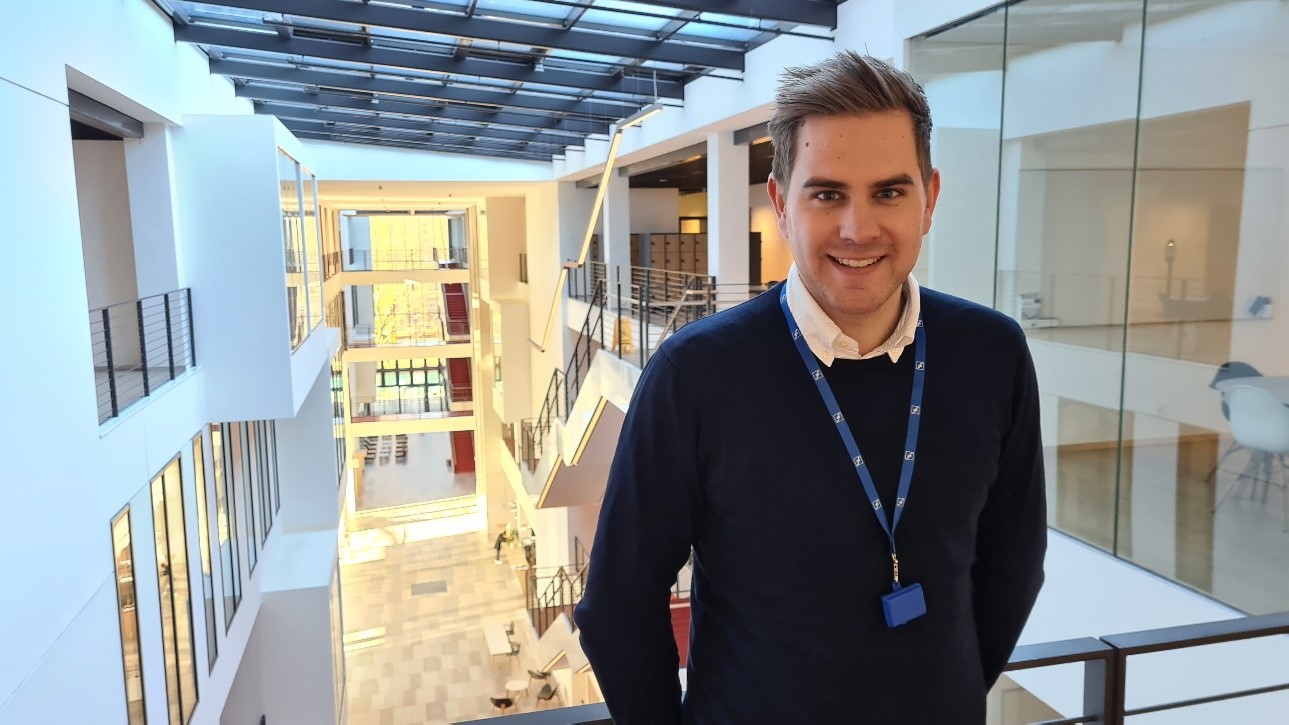
by Jonas Wessel
How my phd visit strengthened my research network.

by Prof. Dr. Christian Schmaltz
Should pandemic scenarios be included in the risk management tool box.

COVID-19: How can risk management handle the challenge?
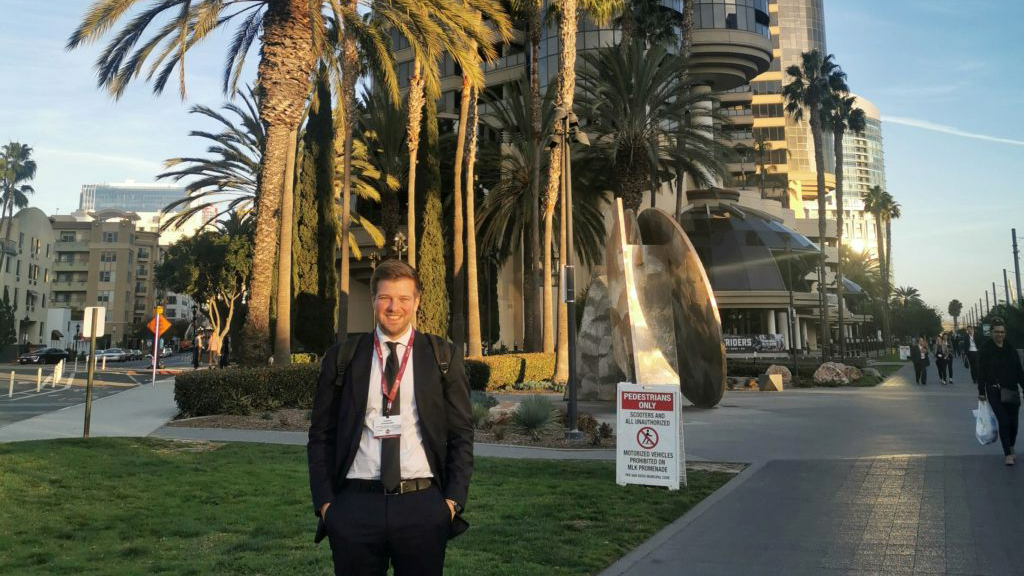
by Lorenzo Schönleber
My journey on finding a finance assistant professor position.

by Wenjiao Cao
On the job market.

My PhD Visit at the NYU Courant Institute of Mathematical Science
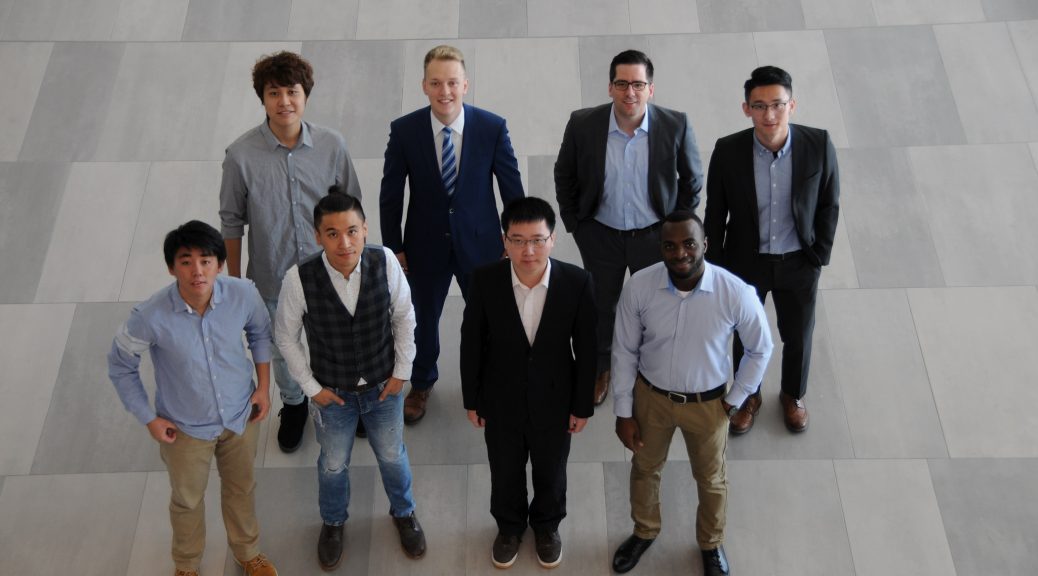
by Felix Fritsch
My experience in the fs doctoral programme.
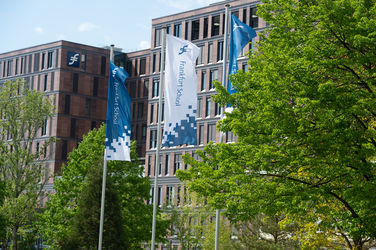
by Yuriy Timofeev
When do victims of non-financial fraud lose more.
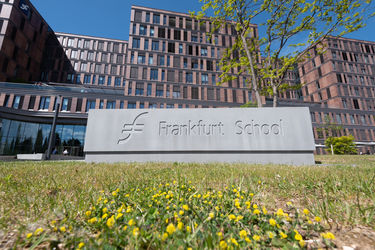
Incentive-based Compensation and Financial Misreporting: Evidence from a Refined Sample
In the first two years, doctoral students attend core courses, elective courses, and concentration courses in their respective academic specialisations. In this phase, they obtain the knowledge and skills to research.
The four specialisations, Accounting, Economics, Finance & Management, follow a similar structure.
We asked Dr. Timo Vogelsang, Assistant Professor of Management Accounting, why it is important to invest in coursework at the beginning of your research career. Here is what he had to say:

“The courses are an important basis for excellence while doing your dissertation research. Moreover, during your academic career, you will probably never have so much time available to learn new things. My supervisor always told me this. Now I sometimes regret that I did not spend much more time during the course-phase to learn more about the most current empirical methods and theoretical approaches.“

Ruishen Zhang, Assistant Professor of Accounting
Finished his doctoral studies at frankfurt school and is now an assistant professor at shanghai university of finance and economics., "the frankfurt school faculty has introduced me to a wide range of topics in accounting research and has helped me connect with the international research community. my experience at frankfurt school has prepared me for my academic career.", ruishen zhang, assistant professor of accounting,.

Prof. Dr. Tobias Berg
Professor of finance, head of finance department, „we seek to educate our dr. rer. pol. students so that they can work on the frontier of academic research. we want to foster creativity and challenge dr. rer. pol. students every day, making them well prepared to work at top universities and research institutions worldwide.“, prof. dr. tobias berg,.

Prof. Dr. Frank Ecker
Professor of accounting, head of accounting department, "what i find very attractive about accounting is how many different important research areas it actually encompasses. while evolving around the concept of “information”, accounting spans strategic considerations in the reporting of financial and non-financial information, consequences for resource-allocation decisions, corporate governance, employee performance measurement, and designing optimal incentive schemes, to name a few. many important questions in these areas remain unanswered, providing ample research opportunities for talented students from all over the world.", prof. dr. frank ecker,.

Ionela Andreicovici
Assistant professor of accounting, “having a data science background myself, i can confidently say that frankfurt school is the perfect place for me to apply my knowledge in data science in answering important questions. for instance, i use machine learning algorithms to try to push the boundaries of accounting research. for dr. rer. pol. students, the faculty not only offers vision but also resources to support them in putting their data science knowledge into action while advancing their understanding of economics.”, ionela andreicovici,, doctoral student life at fs.
We asked some of our current doctoral students to describe a typical day in their lives at the Frankfurt School. Here is what they said:

"On a typical day, I get up at 7:30 am. I check my emails, do in-door sports, and have breakfast. I leave home around 9:15 am and learn German on the underground. At school, I continue working where I stopped yesterday. As a third-year student I have finished my coursework, so I fully focus on my research. My favourite part of the day is the lunch break when I meet my school mates. Today in the afternoon, I attended the regular reading group lead by Professor Falko Fecht on the topic of banking and financial intermediations."
My favourite part of the day is the lunch break when I meet my schoolmates. Today in the afternoon, I attended the regular reading group lead by Prof. Dr. Falko Fecht on the topic of banking and financial intermediations."

“Once a week, we usually have a research seminar day, where a scholar from another university presents their research. Sometimes these scholars are legends in your field, whose work is quoted everywhere and it is always interesting to see the rigour with which their work is still interrogated. My favourite thing about this day though, is you get a chance to spend some time speaking with them and you realize they are pretty cool people, trying to do the best research they can, just like you. ”
My favourite thing about this day though, is that you get a chance to spend some time speaking with them and you realise they are pretty cool people, trying to do the best research they can, just like you.”

“On a usual day, I am arriving at my desk between 8 and 9 am after having exercised in the morning. Then, I am getting my first coffee in the Faculty Lounge, which is also an excellent place to meet fellow PhD-students or faculty. After that, I am settling down at my desk and start working. As I am mostly working on theoretical projects, a lot of my work consists of solving mathematical problems. Hence, I am either programming potential solution algorithms or I am working with pen and paper. Here, the atmosphere at the Frankfurt School allows me to work in a highly concentrated manner."
At around twelve, most doctoral students are having lunch together. So, that’s perfect timing to chat about current news, research updates, or general things. Often, we are also having a seminar at lunchtime, where a top researcher presents his or her current project. These seminars are mostly highly interactive and a good way to get to know professors from other institutions as well. Due to Corona, a lot of seminars also shifted to online, such that there is a virtual presentation at some conference or seminar series almost every day. After lunch, I am typically trying to read a paper to catch-up with the current state of research. Thereby, I am trying not to focus too much on a single field but really to get a broader understanding of the economics and finance literature. Thereafter, I am often having a meeting with my supervisor or some other faculty member in the afternoon. There, we discuss my progress and these meetings are a great opportunity to ask open questions that help me to progress faster. After having had some more coffees throughout the day, I am leaving the Frankfurt School in the evening. After dinner at home, I am mostly reading books that are not connected to my research. Sometimes, this is also the perfect time to answer emails from students that arrived throughout the day.”
Student funding and scholarships
Frankfurt School offers fully-funded study places for the doctoral programme in order to attract and support the brightest minds in academia.
Students are expected to devote 100% of their working time to their doctoral studies at Frankfurt School for up to five years.
Funding includes a tuition fee waiver and a cost-of-living stipend. The monthly stipend comprises of EUR 1,820.
The stipend will be granted for five years, conditional on continuing to satisfy all academic programme requirements.
Doctoral students will receive EUR 1,820 from the first year onwards, for five years.
Furthermore, Frankfurt School covers costs related to research, including conferences and overseas visits.
Publications by doctoral students
Frankfurt School doctoral students contribute to high-quality research and publish in scientific top journals.
Application process
1. target group.
Outstanding graduates of a Bachelor‘s or Master’s programme in business administration, finance, management, accounting or related fields who aspire to launch an academic career.
Candidates in the final year of a Master’s or Bachelor’s programme are welcome to apply with their most recent academic transcript. Please note that the degree has to be completed by the time of the beginning of the PhD. The expected grade of the applicants may not be less than a “B” grade point average or 75% of the achievable credits. Foreign degrees will be checked regarding their equivalence.
2. Online Application
The first step of our application process is to complete the online application form. You will need to upload the required documents. Please note that you need a certified English or German translation for all documents not originally in German or English. The application platform will be open from 15 September until 15 January
Required Documents
- CV and list of publications (if existent)
- Certified copy of your University Entrance Qualification (Abitur, A-levels or equivalent)
- Certified copy of your University Degree Certificate or equivalent and academic transcript of records
- Official GMAT or GRE results
- Proof of English Language Proficiency Test (TOEFL IBT min. score of 100/IELTS min. score of 7.0)
- Statement of Purpose (up to 2 pages): Why are you interested in your chosen field of study? What are the potential areas of research you might pursue? Have you completed any research projects with faculty? Is the research of any member of the FS faculty of interest to you?
- Optional Statement: If you would like the committee to consider any of the following factors, you can describe their relevance in a separate statement within the application. This can contribute to the diversity of the entering class: background, extracurricular activities, work experience.
Two letters of recommendation: To request the letters from your recommenders, you have to register on a separate platform and send your request from there.
Please click on this link to access the platform: http://apply.interfolio.com/79802
Create a profile by clicking on the button “Apply now”.
If you require assistance, go to the “Home” tab and click the “Dossier Quick Start Guide”.
Once you send your request to your potential recommender, they will receive an e-mail together with a link where they can upload their recommendation letter confidentially. Please provide a deadline for your recommendation letter to ensure we receive it on time. Once the recommender has uploaded the letter, we will be notified and will be able to access it.
3. Interview
Successful applicants will be invited to an online interview with faculty members of their chosen concentration.
The final decision regarding admission to our doctoral programme will be made by the Committee for Doctoral Proceedings. It is based on the applicant's overall portfolio and the interview.
If you wonder what qualities the selection committee is looking for in applicants, here is some advice:

Prof. Dr. Markus Fitza, Professor of Management
states: “We are looking for outstanding conceptual and analytical skills. A genuine interest in research and a career in academia is a must.”

Prof. Dr. Francesco Sangiorgi, Professor of Finance
similarly highlights analytical skills for the Finance programme: “We encourage applications from candidates with strong analytical and quantitative skills.”

Prof. Dr. Yuping Jia, Professor of Accounting
emphasizes that applicants do not need to be experts in accounting regulation, indeed she argues that “Accounting is interested in original thinkers, who are creative and have broad interests. People with diverse backgrounds, but with genuine curiosity will find that accounting research has a lot to offer.”
Isabeau Köhncke Recruitment Officer
Lianna Mirzoyan Recruitment Officer
- Studieninteressierte
- Studierende
- Beschäftigte
- Weiterbildung
- Alle Studiengänge
- ALMA Portal
- Exzellenzstrategie
- Personensuche (EPV)
- Studierendensekretariat
- Universitätsbibliothek
- Vorlesungsverzeichnis
- Webmail Uni Tübingen
- Zentrale Studienberatung
Doctoral Program in Finance
You have been seriously and with growing interest studying Finance, Economics and Econometrics, and you are wondering whether you are able to make a genuine academic contribution of your own? You are interested in pursuing a PhD in Finance at a research-oriented university? You would like to become part of a research-active team with an exciting and innovative scientific agenda? Then you should consider joining our Doctoral Program in Finance (DPF). The DPF offers a strictly research-oriented education with a coursework component and a structured supervision process. The coursework component will teach you skills that will enable you to comprehend the most recent research in the areas of your interest. There is a commitment of an interactive and well-developed supervision process, supporting the development of your own research agenda and helping you to become an independent thinker in your field. It is part of our mission to make you visible as an independent researcher at the end of your studies, enabling you to apply successfully for academic positions all over the world. To help you get there, the DPF expects you to present your work once every academic year in a research seminar, and to actively participate in at least one international conference/workshop during your doctoral studies.
Requirements
Interested? Here is what you need: for a start, the DPF relies on a well-defined level of competence in core fields of modern finance, economics, and econometrics as, for example, defined in the core courses of our Msc. Program in Economics and Finance. However, the DPF is also open to applicants with backgrounds in other fields than economics. In this case, you may be asked to take the core courses (or a subset of them) in your first year here, in order to ensure your sound knowledge in those fields.
The coursework component of the DPF requires each student to take field courses worth 27 ECTS. The selection of these courses is part of the supervision agreement, so you are not left alone when you will decide on your course selection. Here are examples of the classes that are/ have been offered:
- Financial Economics
- Continuous Time Finance
- Empirical Asset Pricing
- Numerical Methods in Finance
- Statistics of Financial Markets
- Empirical Banking
- Current Topics in International Business Taxation
- Financial Market Microstructure
Details and course descriptions can be found in the module handbook (see download section). Please note that this program may change from year to year, also in response to the qualification objectives of our program.
If you have successfully completed a Master program and have taken classes on PhD level during your studies, you may transfer credits to the DPF. However, this transfer is restricted to 18 ECTS.
Application
So, what next? Admission to the DPF is coordinated with the admission process as a doctoral student. Your best strategy is to get in touch with a potential supervisor of your thesis. How can you do this? Just browse our websites and explore our diverse research activities. You find a group of (financial) economists and a group of econometricians. Make an appointment and discuss your options. Then ask your potential supervisor to get the ball rolling: enroll as a doctoral student and apply for admission to the DPF. You may also submit an application without naming a supervisor. In this case the coordinator of the DPF will consider your application and approach potential supervisors for you. However, in order to avoid disapointment, we recommend that you explore our diverse research options first.
If you are enrolled in a Master program at the University of Tübingen, you may want to consider the PhD track. This track also allows you to start the supervision process in the second year of the program. After one year in the program, you may contact a potential supervisor and ask for supervision. This supervision will be based on an arrangement that specifies your (preliminary) research interest and should make acceptance as a doctoral student easier once you have completed your degree (although it does not guarantee that you will be accepted as a doctoral student). The main purpose is to offer academic guidance at an early stage.
Note carefully that the DPF itself does not offer any funding, albeit there are plenty of opportunities to work as research and teaching assistant. Furthermore, we are more than happy to give you advice on funding options. At the same time, the DPF does not charge any tuition fees.
I hope that you will consider joining our program. If you have any questions, please do not hesitate to contact us under joachim.grammig spam prevention @uni-tuebingen.de .
Joachim Grammig Professor of Econometrics and Empirical Economics Coordinator of the DPF
More about our PhD Program and our Research Associates Program
- Application
- Mental Health
- In cases of discrimination, sexual harassment, or any form of power abuse
- Soft skills training and key qualifications
- Good scientific practice
INSIGHTS aims to build a bridge between academia, policy makers and the wider public.
- Policy Fellowships
- Conference Presentations
- INSIGHTS Pieces
- Knowledge Labs
- Research Projects
- INSIGHTS PhD course: Economics and Transfer to the Public
- INSIGHTS Events
- Internships
- Communication
- European Winter Meeting of the Econometric Society 2022
- Discussion Papers
Our members, alumni placements and visiting faculty
- Visiting Faculty
Scientific events in the Berlin area
Current Job Market Candidates
- Job Market Candidates
General information
- PhD Program

The Berlin School of Economics PhD Program provides outstanding doctoral students with a vibrant, intensively networked research community. The program develops the students’ talents in a unique combination of a high-level, academic research environment together with applied, policy-oriented research opportunities. Students receive state-of-the-art coursework training and can select from a wide array of specializations. For each specialization, a professional research environment is provided by Berlin’s universities and economic research institutes.
How to apply
Course catalog
Program structure and curriculum
All PhD tracks offered in the PhD Program share the same structure and general curriculum. The program’s curriculum is divided into a qualification and a dissertation phase:
Qualification Phase
During the qualification phase (about three semesters), students acquire methodological and research-oriented training in mandatory course work in economic theory, applied economics, business studies, econometrics, and economic policy. Students define their research area and find supervisory support from two supervisors. They write research proposals that are discussed with faculty members individually and in seminars in order to provide early feedback on the scientific potential of research ideas. This is a central part of the PhD Program, in which the students have full flexibility in the choice of their research topics and of the supervisors. During this phase, students are funded through stipends that allow for this flexibility. In total, students have to complete a minimum of 90 ECTS credits in order to finish the qualification phase of the program.
Dissertation Phase
During the subsequent dissertation phase (about three years), students write a doctoral thesis while having the opportunity to apply their knowledge in the professional research environment that is provided at the Berlin universities and research institutes participating in the Berlin School of Economics. In this phase, students are typically employed at their supervisor’s chair or in research groups at research institutes.
The PhD will be awarded by one of the institutions in the Berlin School of Economics with the right to award doctoral degrees. In most cases, the PhD is awarded by the institution the student’s first supervisor is affiliated with.
The following chart gives an overview of the general structure of the PhD Program:

Researchers Guide
This guide includes academic advices from the researchers of the Berlin School of Economics.
Special thanks to the INSIGHTS Team, researchers of Berlin School of Economics, Agne Kajackaite, Aleks Zaklan, Alexander Kriwoluzky, Ally Xin Lin, Annekatrin Schrenker, C. Katharina Spieß, Christian Basteck, Ciril Bosch-Rosa, Dorothea Kübler, Francis de Véricourt, Georg Weizsäcker, Gyula Seres, Hande Erkut, Hannes Ullrich, Jana Hamdan, Levent Neyse, Lisa Bruttel, Lutz Weinke, Mira Fischer, Müge Süer, Nikolaus Wolf, Peter Haan, Robert Stüber, Sebastian Schweighofer-Kodritsch, Simone Maxand, Vincent Meisner, and Pablo Brañas-Garza.
You can download the web version
or print the printable version
Also note the compiled information on our website about support and resources, for example Mental Health.

- Job vacancies
- Degree Programs
- Application
- Course Catalogue
- Study Office
- Examination Office
- Dates and Deadlines
- General Information
- Berlin School of Economics
- Information for new employees
- Personnel Department
- Staff Representatives
Humboldt-Universität zu Berlin - Finance Group
Writing a doctoral dissertation in finance.
Students interested in the practical relevance of academic research in finance and who have a strong academic track record should consider writing a doctoral dissertation. The finance track of the Berlin School of Economics PhD Program ( https://bdpems.wiwi.hu-berlin.de/portal/ ) introduces students to research questions and methodologies that shape current research in financial economics, and prepares graduates for research careers in universities, central banks, and other research-oriented institutions.
Our PhD program consists of intensive course work in microeconomics, econometrics, and financial economics during the first year, and advanced specialization courses in finance in the second year. The core course in finance covers the main fields of financial economics, i.e., corporate finance, financial intermediation, and asset pricing. Elective courses from other fields in economics can also be chosen. Students must complete a minimum of 90 ECTS in order to finish the program. The typical study sequence in finance is as follows.
The finance faculty currently include Tim Adam, Max Bruche, Beatriz Mariano, Lukas Menkhoff, and Alex Stomper. We nurture a stimulating environment for research in finance. Our core strengths lie in the areas of corporate finance and financial intermediation, but we are also interested in research at the intersection of finance with other fields in economics (e.g. labor economics, international economics, or development) as well as outside economics (e.g. history, climate change.
We are conducting both empirical and theoretical research, and have access to many of the major databases in finance, such as EIKON, Compustat, Capital IQ, Bloomberg, and Morningstar. In addition, Prof. emeritus Richard Stehle has calculated the Fama-French factors for Germany since 1958. This data is available here . Funding for other financial data is available upon request.
Application
If you would like to write a doctoral dissertation in finance you must first apply to the Berlin School of Economics (BSE) PhD Program ( https://bdpems.wiwi.hu-berlin.de/portal/content/application ). The application deadline is each year in February.
We do not supervise external dissertation projects. Every student wishing to write a dissertation in finance must first enroll and complete the BSE PhD Program.
Frequently Asked Questions concerning studies at the PhD level: https://www.wiwi.hu-berlin.de/de/professuren/vwl/wipo/faq_master_phd
2-year scholarships (€ 1.200/month) are available for applicants with outstanding academic credentials. Upon successful completion of the first- and second-year courses, students are eligible to apply for a research assistant (Wissenschaftlicher Mitarbeiter) position in the Finance Group. This position provides funding for another three years of doctoral study. In addition, there are external funding opportunities, such as the Kauffmann Dissertation Fellowship Program etc. Information on further funding opportunities are available from the Scholarship Portal .
Starting April 1st 2013, the Humboldt-University will offer "Humboldt Research Track" scholarships at € 800 for the first time, in order to pave the way to a doctoral degree for exceptional Master students. The scholarship supports students during the transition phase between the completion of the master degree and the begin of doctoral studies. Additional information is available at: https://www.exzellenz.hu-berlin.de/de/foerderlinien/youth-development/humboldt-research-track-scholarship
Scholarships for post-doctoral studies are available from the DAAD: https://www.daad.de/ausland/studieren/stipendium/de/22346-postdoctoral-researchers-international-mobility-experience/
For more information on scholarships, please visit the website of the Humboldt-Graduate School: https://www.exzellenz.hu-berlin.de/de/foerderlinien/youth-development/humboldt-research-track-scholarship
Placement Students mentored by members of the finance faculty have been placed in universities such as Cass Business School, Copenhagen Business School, Ghent Univ., and Univ. of Georgia, in central banks and public sector institutions such as BaFin, Bundesbank, ECB, KfW, and OECD, as well as in the private sector, e.g. Deutsche Asset Management, HSBC Trinkaus & Burkhardt, or Munich Re.
Ph.D. Finance Curriculum
Advanced Financial Economics (4 SWS, 9 ECTS, SS)
This course covers the main areas in finance: corporate finance, financial intermediation, asset pricing, and investments.
Research Topics in Finance I (2 SWS, 6 ECTS, WS)
This course explores classic and current academic research on Financial Intermediation. It targets PhD and Master students who are currently looking for a topic for their own thesis. The course starts with a lecture-style presentation of the overarching research themes in the literature. Seminar participants will then present and discuss classic papers, as well as current unpublished papers that are still being presented at conferences.
Research Topics in Finance II (2 SWS, 6 ECTS, SS)
Discussion of current research topics in financial economics.
Finance Research Seminar (2 SWS)
This seminar is a series of research seminars given by external guests in the areas of finance and accounting. For the current seminar schedule click here .
Finance Reading Group (2 SWS)
Discussion of the research presented in the Finance-Accounting Research Seminar and other current events.
Finance Brown Bag Seminar (2 SWS)
In this seminar PhD students present their own work in an informal athmosphere.
Other recommended Elective Courses
· Microeconometric Evaluation Methods (Caliendo (Uni Potsdam), 6 ECTS)
· Applied Econometrics (Gassen/Wagner (ESMT), 9 ECTS)
· Time Series Analysis (Droge, 9 ECTS)
· Analysis of Panel Data (Droge, 9 ECTS)
· Applied Microeconomics (Steiner, 6 ECTS)
· Structural Econometrics: Discrete Choice Methods with Simulation (DIW, 6 ECTS)
· Structural Econometrics in Labor and IO (DIW, 6 ECTS)
· Introduction to Policy Analysis and Policy Advice (DIW, 9 ECTS)
· Empirical Accounting Research (Gassen/Olsson (ESMT), 6 ECTS)
HU on the internet
- Humboldt University on Facebook
- Humboldt University on Twitter
- Humboldt University on Instagram
- Humboldt University on YouTube
- Humboldt University on LinkedIn
- RSS-Feeds of the Humboldt University

- Degree Programs
Ph.D. and MSQ in Quantitative Finance
The Ph.D. Program in Finance at GSEFM is designed to ensure that students acquire a thorough knowledge of the theory of finance, of econometric and computational methods, as well as the structure of modern financial markets, before beginning their own research under faculty supervision. In the first year of the program, students attend core courses in financial economics, econometrics, and mathematical methods. Furthermore, students attend courses in microeconomic or macroeconomic theory. At the end of the first year of studies, students must pass qualifying examinations in finance, econometrics, and microeconomics or macroeconomics. In the second year of the program students complete field courses in two to three fields of their choosing and begin to work on their own research. All students are required to have a faculty advisor by the end of their second year in the program. The role of the faculty advisor is to help the student to make the transition from coursework to research and to identify suitable dissertation topics. By the end of their third year in the program students will need to have completed their first research paper. The dissertation is completed in the fourth year of the program. The dissertation must be a major piece of research, and its chapters must have the potential for publication in an international scientific journal.
First-year students in the MSQ Program in Quantitative Finance enroll in the same set of courses as the first-year Ph.D. Program in Finance students. If completing their first year of studies with strong success, the MSQ Program in Quantitative Finance students are then eligible and strongly encouraged to join the Ph.D. Program in Finance from their second year of studies onwards. The MSQ Program in Quantitative Finance is completed with a Master thesis written in the final months of the second year of studies.
Ph.D. Program Structure
Pre-Semester: Mathematics, Statistics and Econometrics
First Semester: Advanced Econometrics 1 (8 CP), Advanced Financial Economics 1 (8CP), Advanced Macroeconomics 1 (8 CP) or Advanced Microeconomics 1 (8 CP), Mathematical Methods (8 CP)
Second Semester: Advanced Econometrics 2 (8 CP), Advanced Financial Economics 2 (8 CP), Advanced Macroeconomics 2 (8 CP) or Advanced Microeconomics 2 (8 CP), Programming Languages (4 CP)
Qualifying Examinations
First Semester: Field Courses, Workshop Attendance
Second Semester: Field Courses, Seminar, Workshop Attendance
Fields Offered:
Development and International Economics (including Cross-Country Studies, Development Microeconomics, Economic Growth, International Trade)
Econometrics (including Bayesian Econometrics, Dynamic Panel Models, Econometrics of Duration and Transition Data, Long Memory in Time-Series, Non-Parametric Econometrics)
Finance (including Asset Pricing, Corporate Finance Theory, Empirical Banking, Household Finance, Option Pricing, Taxes and Finance)
Macroeconomics (including Consumption and Saving, Economic Growth, Family Macroeconomics, Household Finance, Monetary Theory and Policy, Monetary and Fiscal Policy, Numerical Methods in Macroeconomics)
Marketing (including Bayesian Modelling for Marketing, Customer Management and Social Media, Pricing and Online-Advertising, Structural Models and Competition)
Microeconomics and Management (including Behavioral Auction Theory, Behavioral Economics, Decision Making under Risk and Ambiguity, Economics of Taxation, Empirical Labor Economics, Empirics of Contracts, Experimental Economics, General Equilibrium Theory: History, Incentives in Organizations, Intergenerational Economics, Modeling Group Behavior Using Game Theory, Taxes and Finance)
Historical and Normative Foundations of Economics (including History of Economic Thought, Normative Foundations)
During either the third or fourth year in the program, students may spend one or two semesters abroad for a research stay at an internationally top ranked Ph.D. program. Such stays are facilitated by the faculty advisor.
First Year Courses
The details of the course offerings will differ somewhat from year to year, depending on the faculty member teaching the course in question. The following list summarizes typical first-year course contents. For more details on these courses in any given year as well as the field courses, it is best to consult the course syllabi typically retrievable on individual faculty members’ websites.
UNIVERSITY OF COLOGNE
Faculty of management, economics and social sciences cologne graduate school in management, economics and social sciences, phd programme in economics.
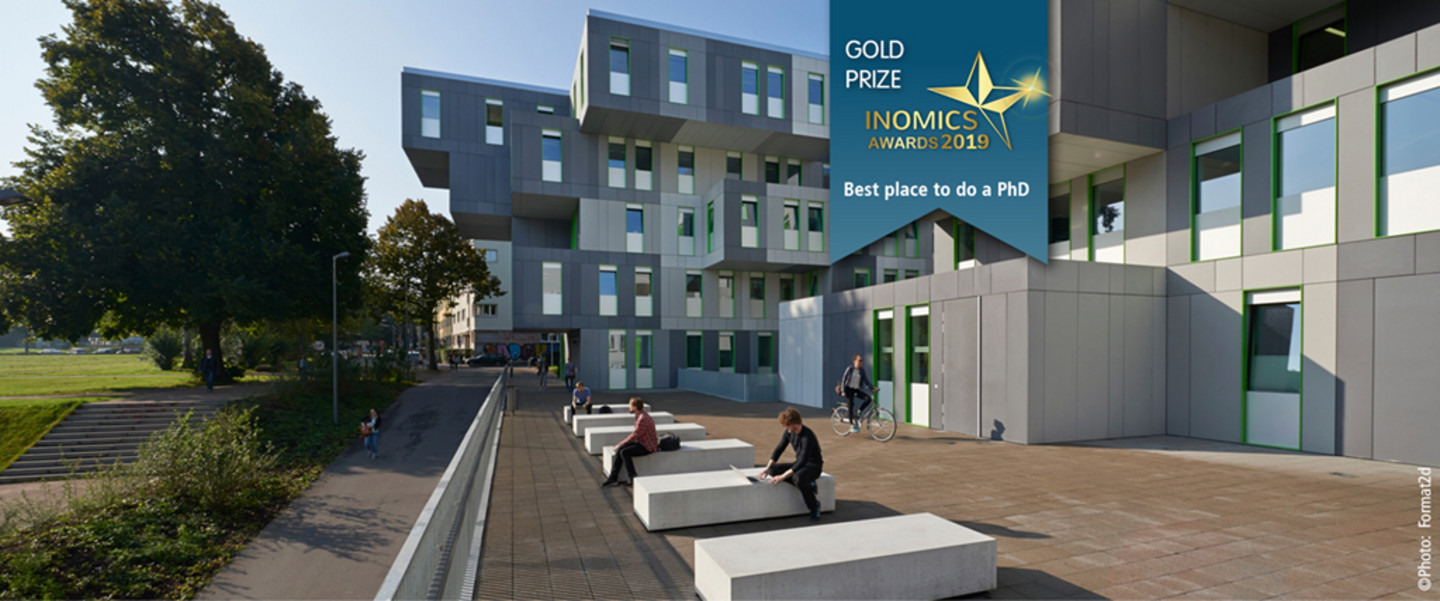
The Cologne Graduate School (CGS) in Management, Economics, and Social Sciences offers a doctoral (PhD) programme with an integrated M.Sc. Economic Research. It consists of two stages:
- The first stage of the programme is the two-years M.Sc. Economic Research. It prepares students for high-level research in economics. It is fully taught in English.
- In the second stage, PhD students work on research projects for their dissertation and interact with other PhD students and faculty members in workshops, seminars, and summer schools.
The PhD Programme in Economics offers education, funding and supervision for research in all major fields of economics and related fields in management. It is a challenging and rigorous full-time programme in a friendly, supportive environment dedicated to excellence in teaching and research. Taking part in the graduate programme prepares students for academic positions at universities and institutions around the world as well as for top-level positions in internationally-orientated companies.
Applications for the graduated program can be either for the first stage (bachelor students) or for the second stage (master students). We invite applications of outstanding students who are close to finishing a bachelor's or master's degree in economics or a related discipline who count among the top 10% of graduates in their study programme.
Students with a bachelor's degree will enter the integrated graduate programme in the first stage via the M.Sc. Economic Research and can transfer to the second PhD stage after successful graduation of the M.Sc. Economic Research.
Students already holding a research-oriented master degree can directly enter the second stage. Students with a related master's degree without an explicit research focus (e.g. in economics, econometrics, finance, business administration, or math) attend one year of course-work before entering the second stage.

We offer funding and facilities for students at all levels. Specifically, grants are available for accepted students holding a master degree and for highly qualified applicants with a bachelor´s degree. Students who successfully passed the course-work and are admitted to the second stage can receive funding through CGS scholarships, positions financed through the excellence cluster ECONtribute or doctoral positions at the departments and chairs of the Faculty.
These doctoral students are also equipped with a workspace and computer devices at the beginning of second stage. Shared rooms with computer devices are also available for students in the first stage. Student housing is available for national and international bachelor and master students moving to Cologne. For more information regarding housing please consult the webpages of the Kölner Studierendenwerk .
The PhD programme in Economics is part of the Cologne Graduate School in Management, Economics, and Social Sciences (CGS). It closely cooperates with the following research centers at the University of Cologne and Key Research Initiatives of the Faculty of Management, Economics and Social Sciences:

Cluster of Excellence “ECONtribute: Markets and Public Policy”: The Cluster brings together outstanding researchers from economics and neighboring disciplines – management, psychology, political science and law – from the Universities of Cologne and Bonn, the Behavior and Inequality Research Institute (briq) and the Max Planck Institute for Research on Collective Goods, with the goal of establishing a leading international research center on markets & public policy.
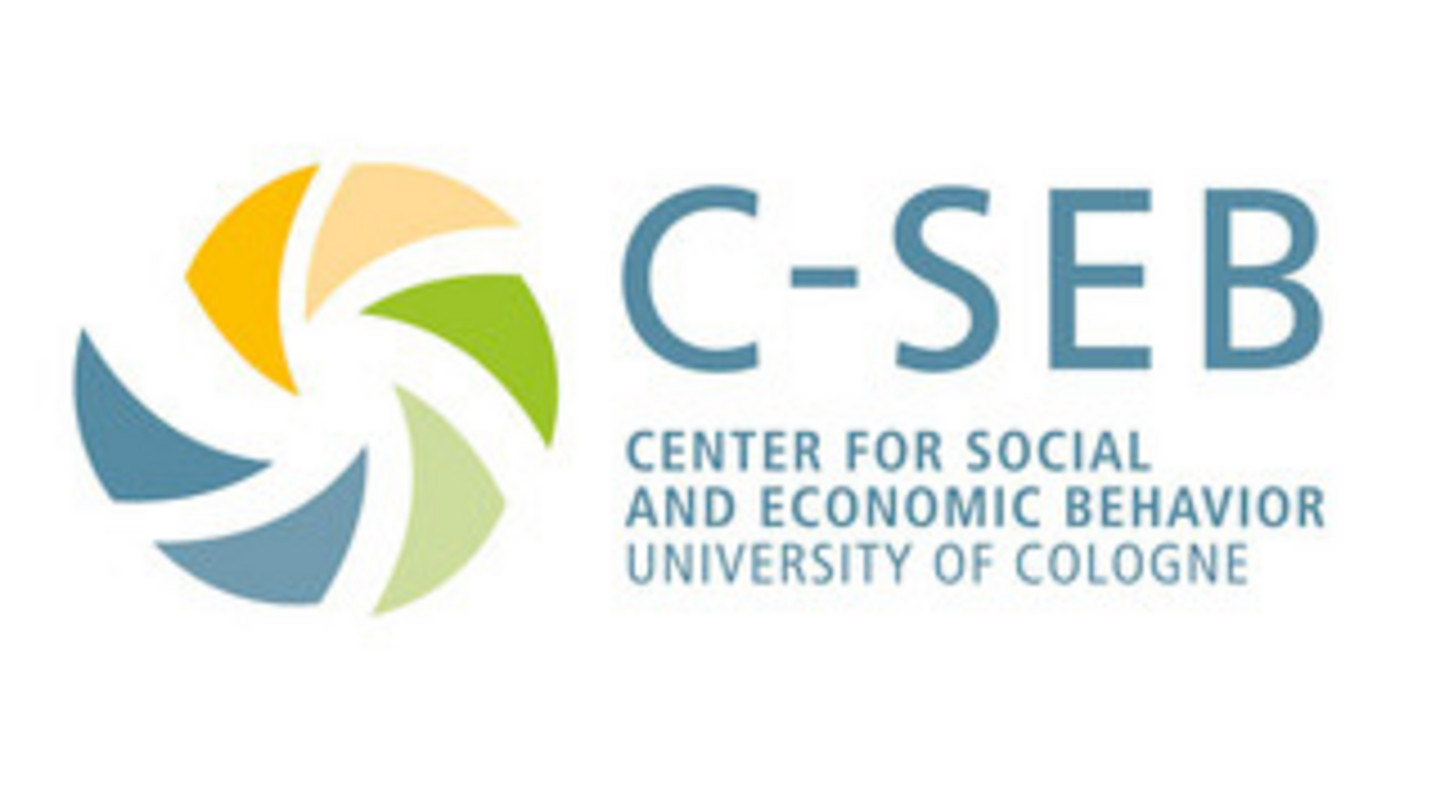
Center for Social and Economic Behavior (C-SEB): The Center for Social and Economic Behavior (C-SEB) at the University of Cologne brings together Cologne-based researchers and international colleagues from economics, management science, and psychology who investigate the fundamental principles and behavioral mechanisms that affect social and economic behavior.
Behavioural Management Science (BMS): The WiSo Key Research Initiative Behavioural Management Science (BMS) brings together researchers that apply methods of behavioural economics and applied microeconometrics to advance our understanding of how management practices influence the behaviour of people in organisations and affect organisational performance.
Be part of the Cologne experience!
Ph.D. in Finance, fully funded
In cooperation with the graduate school of economics, finance, and management (gsefm).
The GSEFM offers a quantitative and research-oriented education featuring the structures of premier anglo-saxon graduate programs. Together with SAFE, it provides an environment where students can benefit from a unique research group in Finance spanning a wide range of topics as well as from the location in Frankfurt, the primary center for financial markets and central banking in continental Europe. The program does not charge tuition fees.
The GSEFM Ph.D. Program in Finance consists of two years of doctoral coursework with a qualifying examination at the end of the first year. Core courses in financial economics, econometrics, and mathematical methods (first year) and two to three elective courses (second year) ensure that students acquire a thorough knowledge of the theory of Finance before beginning their own research.
The Leibniz Institute for Financial Research SAFE, based at the same premises at Goethe University’s House of Finance, offers funding for the entire program to excellent applicants for the Ph.D. Program in Finance as well as to those for the Program in Economics who pursue financial economics as one field in their studies. Funding includes a scholarship of monthly €1,300 in the first program year and, conditional on passing the preliminary exams, an ensuing work contract as research assistant with sufficient time allocation to work on the thesis.
SAFE – short for Sustainable Architecture for Finance in Europe – is dedicated to interdisciplinary research on the financial markets and their players in Europe as well as to research-based, independent policy advice. It is committed to contributing to a sustainable and resilient financial system that promotes innovation and serves the needs of the economy and the society.
The GSEFM education combined with research work at SAFE offers exceptional global career opportunities in academia, international organizations, or financial regulation. ( List of recent placements )
SAFE aims to increase the proportion of female scholars among its research staff and will therefore give preference to female applicants in case of equal qualification.
Interested? Please visit the GSEFM website for more information on the Ph.D. in Finance and admission requirements . Please follow the instructions on the GSEFM website on how to apply and make sure you choose SAFE as first preference under the header "Application for Financial Aid" in the application form.
Do not send applications directly to SAFE. Only applications submitted via the GSEFM/Goethe University admission portal will be considered in the application process.
Download the fact sheet PhD in Finance/Economics, fully funded by SAFE
Contact for questions
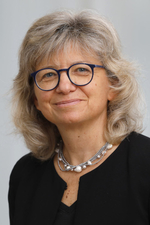
Prof. Loriana Pelizzon, Ph.D.
Deputy scientific director, director research department "financial markets".
- News Archive
- SAFE Finance Blog
- Event Archive
- Further events at the House of Finance
- SAFE in the media
- Research Magazine Points
- Distribution List
- All Publications
- Published Papers
- Working Papers
- Policy Publications
- Financial Intermediation
- Financial Markets
- Household Finance
- Macro Finance
- Law & Finance
- Researchers
- Research Projects
- Experiment Center
- Pension Finance Lab
- Who Can Visit?
- Application and Funding
- Research Fellows
- Research Affiliates
- Open Access
- Ombudsperson
- Data Sources
- Data Center Team
- Policy Center Team
- SAFE Senior Fellows
- Policy Advisory Council
- Finance Blog
- Policy Lectures & Web Seminars
- LawLab – Fintech & AI
- Management Board
- Scientific Board
- Board of Trustees
- Research Advisory Council
- Service Unit
- Equal Opportunities
- Good Scientific Practice
- SAFE as Host Institute
- PhD in Finance
- Doctoral Program in Law, Finance, and Economics | Leibniz Institute SAFE
- Moving to Frankfurt
- House of Finance
- How to find us
- CHE University Ranking
- DAAD database on admission requirements
- Help and Advice
International Programmes 2023/2024

Berlin School of Economics PhD Programme Berlin School of Economics PhD Programme
Humboldt-universität zu berlin • berlin.
- Course details
- Costs / Funding
- Requirements / Registration
- About the university
Freie Universität Berlin, Technische Universität Berlin, University of Potsdam, ESMT Berlin, Hertie School, Berlin Social Science Center (WZB)
The general working language in the Berlin School of Economics is English. All courses are held in English.
Beginning/middle of February for the following winter semester starting on 1 October
Please check our website for updates .
The Berlin School of Economics offers Berlin's career development programmes in economics, accounting, finance and management at the PhD and post-doc levels in a single and unique structure. Within the Berlin School of Economics, Humboldt-Universität zu Berlin , Freie Universität Berlin , Technische Universität Berlin , University of Potsdam , ESMT Berlin , Hertie School, and Berlin Social Science Center (WZB) are pooling their efforts in the education of young researchers in economics.
The Berlin School of Economics PhD programme provides outstanding doctoral students with a vibrant, highly interconnected research community and a training structure that develops their talents in a unique combination of high-level academic and applied research. During the two-to-three-semester course phase of the programme, students deepen their knowledge of economic theory, applied economics, business studies, econometrics, and economic policy. To complete the course phase, 90 ECTS have to be obtained in courses, workshops, seminars, internships, etc. During the three-year research phase of the programme , students write their doctoral theses while having the opportunity to apply their knowledge in the professional research environment that is provided at the research institutions participating in the Berlin School of Economics.
The Berlin School of Economics PhD programme has four PhD tracks from which students can choose:
- PhD in Accounting
- PhD in Economics
- PhD in Finance
- PhD in Management
These tracks share a similar structure and allow for numerous specialisations.
The Berlin School of Economics post-doc programme ( Berlin School of Economics Research Associates Programme ) recruits its members from the international job market for new PhD graduates. The programme provides its members with academic mentoring and offers multiple support structures for research activities, travel, and skill development.
The Berlin School of Economics rests on the long-running efforts of a highly collaborative work environment of Berlin’s economic research institutions. Both Berlin School of Economics programmes are connected to all major research activities of the participating institutions.
Berlin School of Economics graduates are excellently prepared for positions in academia as well as for policy-related institutions and organisations, which has been documented by a list of outstanding placements .
Information can be found on our website .
- International guest lecturers
- Projects with partners in Germany and abroad
Self-organised internships during the course phase of the programme are possible, but they are not mandatory.
- Other (e.g. state level)
Currently about 250 EUR per semester
PhD students will receive funding for the expected length of the programme. For the course phase, a stipend of 1,450 EUR per month and a family allowance for your children (if applicable) is provided. Funding during the research phase is normally provided through employment at one of the member institutions of the Berlin School of Economics.
The Berlin School of Economics welcomes highly qualified post-graduate students from around the world to enrol in its structured PhD programme.
Applicants should have a Master’s degree in Economics or Business Studies and have performed exceptionally well in their studies. Applicants from related fields (such as Industrial Engineering, Statistics, or quantitative social sciences) may also fulfil the admission requirements if they have a sufficient background in Economics or Business Studies.
All applicants may provide GRE General Test scores with their application. Providing GRE General Test scores is highly recommended but not mandatory. In addition, please note that the minimum scores for the GRE General Test (for admittance to the programme) vary based on the score levels of all applicants in the given year. Therefore, we do not specify a minimum score that must be achieved.
Applicants with a Bachelor’s degree are eligible to apply for the programme if they also apply for a Master’s programme in Berlin that offers a fast track option.
Applicants whose native language is not English are asked to demonstrate their English language proficiency, unless they hold a degree from a university in an English-speaking country or can document at least one year of studies at an English-speaking university. Sufficient evidence of a good command of English can be demonstrated by a high score in the Test of English as a Foreign Language (TOEFL) or the International English Language Testing System (IELTS). Providing TOEFL or IELTS scores is highly recommended but not mandatory. Minimum scores that have to be achieved are not specified.
German language proficiency is not required.
Applications are to be submitted via our online application portal that is open during our annual application period.
More information can be found on our website .
For all of its doctoral students (and post-docs), the Berlin School of Economics provides support, e.g. mock job interviews, to help students successfully navigate the job market to find jobs as economists or in a similar field.
- Welcome event
- Buddy programme
- Accompanying programme
- Visa matters
Humboldt-Universität zu Berlin
Within the Berlin School of Economics, Humboldt-Universität zu Berlin , Freie Universität Berlin , Technische Universität Berlin , University of Potsdam , ESMT Berlin , Hertie School , and Berlin Social Science Center (WZB) are pooling their efforts in the education of young economists.
The Berlin School of Economics Office, which coordinates all of the activities of the Berlin School of Economics, is located at the School of Business and Economics of Humboldt-Universität zu Berlin.
University location
Activate map.
To activate the map, click on the "Show map" button. We would like to point out that data will be transmitted to OpenStreetMap after activation. You can find out more in our privacy policy. You can revoke your consent to the transmission of data at any time.
We need your help to improve our website!
we are re-designing our website and want to include you in the process. Please fill out a short questionnaire. This will only take a few minutes, but will help us tremendously to determine how we can improve the usability of our website. Thank you very much for your support!
Best regards, Your DAAD Team
© DAAD
- jump to main navigation
- jump to main content
- jump to zum Seitenende mit Direkt-Links springen
The faculty at a glance
- Accessibility
- Faculty of Economics and Management Science
work Institutsgebäude Grimmaische Straße 12 04109 Leipzig
Phone: work +49 341 97-33500 Fax: fax +49 341 97 311 33500
Dean Prof. Johannes Ringel
Vice-Dean Prof. Dr. Martin Friedrich Quaas
Vice-Dean Prof. Dr. Rainer Alt
Dean of Studies Prof. Dr. Roland Happ
Deanery Dr. Martina Diesener
Secretariat Cathérine Krobitzsch
Institutes & Facilities
- Centralised faculty body
- Information Systems Institute
- Institute for Infrastructure and Resource Management (IIRM)
- Institute for Theoretical Economics (ITVWL)
- Institute of Accounting, Finance and Taxation (IUFB)
- Institute of Business Education and Management Training (IFW)
- Institute of Economic Policy (IWP)
- Institute of Empirical Economic Research (IEW)
- Institute of Insurance Science (IVL)
- Institute of Public Finance and Public Management (PFPM)
- Institute of Service and Relationship Management (ISRM)
- Institute of Trade and Banking (IHB)
- Institute of Urban Development and Construction Management (ISB)
- Sustainable Banking and Finance
- Financial Economics
- Visual Help
- go to menu level 1
- go to menu level 2
- go to menu level 3
- go to menu level 4
- go to menu level 5
- Institut for Commerce and Banking
If you are planning to do a PhD at the Chair of Sustainable Banking and Finance, as the next academic step, you will find all the important information about the process and further procedure here.
General conditions
In principle, the Chair offers interested and qualified university graduates the opportunity to do a PhD in economics. On the one hand, there is the classic "internal" PhD programme , in which you work on your doctoral studies and at the same time participate in the Chair in a scientific manner. On the other hand, there is also the possibility of an external doctorate at the Chair , where you do your doctorate while working. In both cases, the aim is to create the right conditions for you to successfully complete your doctoral project within two to three years.
For both internal and external promotions, you create s everal individual publications on a specific topic ( cumulative procedure ). The common goal is that the papers you write have a realistic chance of being published in a renowned, peer-reviewed journal. As a rule, the papers will have a quantitative or empirical character and relate to the research areas of the Chair (exceptions confirm the rule!). Throughout the entire doctoral project, you will have the opportunity to discuss your ideas (and problems) at the professorship at any time.
Requirements
Admission to the doctoral procedure is subject to the Promotionsordnung of the Faculty of Economic Sciences. All formal requirements for admission are regulated there. In addition, they should ideally
- have an outstandingly business-oriented degree (Master's/ diploma/ state examination in the subjects of business studies/ economics, business mathematics, business informatics, business education, industrial engineering, mathematics or statistics)
- in addition, a very good knowledge of English is indispensable, as the dissertation will be written in English.
If you are interested in a PhD at the Chair, please send an E-Mail for further arrangements. In addition, you will find below cross-links to further information that may help with formal questions.
Complete PhD procedures
- Dr. Marcus Scheffer (2011-2016, internal, current employer: ERGO Group AG)
- Dr. Christopher Bierth (2013-2016, internal, current employer: B&W Deloitte GmbH)
- Dr. Felix Irresberger (2013-2015, internal, current employer: Leeds University Business School)
- Dr. Hendrik Supper (2012-2014, internal, current employerr: d-fine GmbH)
- Dr. Tobias Berens (2011-2014, external, current employer: Deutsche Apotheker- und Ärztebank eG)
This might also be of interest to you...
Phd at leipzig university, phd at the faculty, research academy leipzig.

MAX PLANCK HUB
FISCAL & SOCIAL STATE
Good reasons to pursue a Ph.D. at the Max Planck Institute for Tax Law and Public Finance
The Max Planck Institute for Tax Law and Public Finance is part of the Max Planck Society, Germany’s most successful research organization. We offer students the opportunity to pursue a Ph.D. in the areas of legal studies or economics. Young academics who write their dissertations at the Institute benefit from attractive financial support. The Institute also offers doctoral students excellent research facilities in the heart of Munich and an inspiring international working environment. More information on the Ph.D. programs in both departments is available here:
Ph.D. Program in Legal Studies in the Department of Business and Tax Law
Ph.D. Program in Economics in the Department of Public Economics
Structured Doctoral Programs
Each of our structured doctoral programs offers a comprehensive and cross-disciplinary curriculum designed to help you realize your full potential and prepare for a successful career. The programs include innovative, personalized advising with regular progress checks, as well as extensive opportunities to broaden your research network and connect with peers in your field.
The University of Bonn offers a wide range of funding opportunities, which have been summarized for you on this page, divided into the following categories:
Bonn International Graduate Schools (BIGS)
Phd programs within our cluster of excellence.
- Structured Doctoral Programs by Discipline
Third-Party Funded Programs
Doctoral education at the highest level: BIGS enable doctoral studies in outstanding research contexts with attractive international collaborations and a qualification program tailored to the needs of graduate students.
Located at the Hausdorff Center for Mathematics and supported by Germany’s Excellence Initiative, BIGS-M is home to all of the University’s doctoral candidates in mathematics and contributes to Bonn’s excellent international reputation in the field.
BGSE offers a structured program that is tailored to the needs of doctoral candidates, including an internationally recognized research network.
Supported by Germany’s Excellence Initiative and jointly administered by the renowned Physics Institutes at the Universities of Bonn and Cologne, BCGS offers doctoral studies through an integrated honors program.
Home to an international community of talented biomedical scientists, BIGS DrugS 6 6 is the hub for doctoral candidates from pharma research institutes within the University’s Faculty of Mathematics and Natural Sciences and Faculty of Medicine.
BIGS-OAS offers a wide range of courses within a research context, focused on the cultures and societies of Asia and Asia Minor.
BIGS Neuroscience provides a top-level, internationally competitive program in this rapidly growing field.
BIGS CPS's interdisciplinary approach combines medical, agricultural and pharmaceutical research.
BIGS Chemistry 10 doctoral candidates enjoy an exceptional and ambitious program covering all fields of chemistry.
This three-year doctoral program is offered in conjunction with the University’s ImmunoSensation Cluster, which is funded by Germany’s Excellence Initiative.
Part of the University of Bonn’s Center for Development Research, BIGS-DR trains students for an international career in development cooperation, policy or research through a combination of academic study and intensive tutorship.
The BIGS Land and Food combines the research at the agricultural Faculty with an interdisciplinary study program.
Clusters of Excellence stand for international and interdisciplinary elite research and offer young scientists excellent funding and career conditions. The University of Bonn currently has six clusters of excellence, more than any other university in Germany, and thus opens up a broad spectrum of possible research topics to doctoral candidates. Here you will find an overview of the university's clusters of excellence.

PhD Programs within our Excellence Cluster
The goal of the Hausdorff Center of Mathmatics is to identify and address mathematical challenges of the 21st century, to advance groundbreaking fundamental mathematical research worldwide, and to develop the mathematical methods and tools required by science and society.
Part of the Hausdorff Center is also a graduate school: The Bonn International Graduate School of Mathematics (BIGS-M) hosts all doctoral students of mathematics and contributes to the outstanding international reputation of the university in this field. The duration of the program is usually 3 years, and the doctorate (Dr. rer nat.) can be earned as a degree.
More information: https://www.bigs-math.uni-bonn.de/de/studies/ 14 15 15
ImmunoSensation2 aims to continue the success story of the existing ImmunoSensation cluster. While the emphasis so far has been on fundamental research in particular of the innate immune system, now the mechanisms of immune intelligence are to be uncovered, i.e. the question of how the body succeeds in adapting immune responses to specific situations and then remembers this in order to be optimally prepared for similar challenges in the future. The cluster's graduate school, the Bonn International Graduate School Immunosciences and Infection offers a structured, three-year doctoral program.
You can find further information about this program here:
https://www.immunosensation.de/opportunities/young-scientists
Until today, dependency studies has almost exclusively dealt with slavery on the American continent or in antiquity. The Cluster of Excellence "Bonn Center for Dependency and Slavery Studies (BCDSS)" aims to broaden this perspective in terms of content, space and time. Within the framework of the cluster, a structured doctoral program with a duration of 4 years is offered.
Further information can be found at: https://www.dependency.uni-bonn.de/en 15 16
Over the last few decades, computer hardware has become smaller and smaller, but their technology remains more or less the same. Slowly, this development is reaching its limits.Thus, we need new technologies that satisfy our growing hunger for even more powerful hardware.
Quantum physics could be a solution.
Together with the University of Cologne and the RWTH Aachen, Bonn researchers want to work on making this new technology usable. To achieve this, quantum bits or even qubits - the quantum counterpart to our previous bits - quantum communication channels that build networks and error correction methods have to be explored from the ground up. As part of the Excellence Initiative, the Bonn-Cologne Graduate School of Physics and Astronomy (BCGS) offers a doctoral program with an integrated honors program.
Further information can be found at: http://www.gradschool.physics.uni-bonn.de/. 4 4
The ECONtribute researches the functioning of markets as well as reasons for their failure. In doing so, the cluster goes beyond traditional analyses by systematically combining model-based theoretical approaches and behavioral explanatory models while incorporating legal and political frameworks. Within the cluster, the Bonn Graduate School of Economics (BGSE) offers doctoral students a tailored structured doctoral program that includes an internationally recognized research network.
Further information can be found at: https://www.bgse.uni-bonn.de. 3 3
Increasing agricultural production despite limited land while reducing the ecological footprint of agriculture - this is one of the challenges of our time. For this reason, the University of Bonn and Forschungszentrum Jülich are jointly developing methods and new technologies to observe, analyze, better understand and more specifically treat plants. The cluster's graduate school, the Theodor Brinkmann Graduate School, offers an interdisciplinary study program to master's students and doctoral candidates at the Faculty of Agriculture.
More information: https://www.phenorob.de/ .

The Third-Party Funded Programs at the University of Bonn offer structured doctoral studies on selected research topics. They enable close networking among doctoral students conducting research on related topics.
Bonn International Graduate School of Mathematics (BIGS-M) 2 17 18 18 Located at the Hausdorff Center for Mathematics, BIGS-M provides an umbrella for all Bonn PhD students in mathematics. Thus, the BIGS-M contributes to the excellent national and international reputation of mathematics at Bonn.
Bonn International Graduate School Immunosciences and Infection The BIGS Immunosciences and Infection is a structured 3-year PhD program in conjunction with the ImmunoSensation Cluster/Bonn. The ImmunoSensation Cluster is part of the Excellence Strategy.
DFG Research Training Group "Gegenwart/Literatur. Geschichte, Theorie und Praxeologie eines Verhältnisses" (GRK 2291) [only in German]
The Research Training group supported by the DFG aims at the exploration and analysis of the constitutive dimensions of the concept of contemporary literature.
DFG international Research Training Group "Myeloid antigen presenting cells and the induction of adaptive immunity" GRK (2168) 19 19 19 19 The DFG-funded project is a cooperation of the University of Bonn and the University of Melbourne. The principal research focus is the intersection between innate and adaptive immunity in the context of infection.
DFG Research Training Group "The Macroeconomics of Inequality" ( GRK 2281) 20 20 20 20 The research program focuses on the macroeconomic aspects of inequality, an aspect of first-order importance for society.
DFG Research Training Group "Template-designed Organic Electronics (TIDE)" (GRK 2591) 21 21 21 The Graduate Program 'Template-Designed Optoelectronic Devices' (TIDE) aims to provide comprehensive doctoral education in the field of Organic Electronics (OE) to meet the requirements of highly qualified and multidisciplinary professionals.
DFG Research Training Group "Tools and Drugs of the Future - Innovative Methods and New Modalities in Medicinal Chemistry" (GRK 2873)
The goal of the RTG " Tools and Drugs of the Future" is to modernize medicinal chemistry and train a new generation of medicinal chemists and researchers at the interface with interconnected disciplines. In addition, the projects are intended to contribute to the development of new drug substances.
Integrated Research Training Group at the DFG Collaborative Research Centre "Synaptic Micronetworks in Health and Disease" (SFB 1089) 22 22 27 27 Located at the newly inaugurated SFB 1089 on neuronal networks, the Integrated Research Training Group offers a structured graduate program for all doctoral researchers at the Centre.
Integrated Research Training Group at theDFG Collaborative Research Centre "Future Rural Africa" (SFB/TR 228) The integrated research group is investigating the relationship between land use change and shaping the future in rural africa in a total of 14 subprojects.
Integrated Research Training Group at the DFG Collaborative Research Centre "Open System Control of Atomic and Photonic Matter" (SFB/TR 185) 24 The collaborative research centre Oscar will explore the physics of open systems.
Integrated Research Training Group at the DFG Collaborative Research Centre "Aortic Diseases" (SFB/TR 259) 25 The aim of this research initiative is to better understand the molecular and cellular mechanisms of resident and non-resident cells in aortic diseases.
Integrated Research Training Group at the DFG Collaborative Research Centre "Regional Climate Change: Disentangling the Role of Land Use and Water Management" (SFB 1502) The SFB combines the strengths of the University of Bonn and its project partners to answer one of the most difficult questions in understanding climate change.
Integrated Research Training Group at the DFG Collaborative Research Centre "Brown and Beige Fat - Organ Crosstalk, Signaling and Energetics (BATenergy)" (SFB/TRR 333) The CRC investigates metabolism/diabetes and focusses on brown adipose tissue.
One Health and Urban Transformation
The NRW Forschungskolleg One Health and Urban Transforming is a transdisciplinary graduate school that aims to find interventions to achieve optimal health for humans, animals, plants and the environment with a special focus on developments in NRW, Saõ Paulo, Accra and Ahmedabad.
International Max Planck Research School Moduli Spaces 27 27 In cooperation with the University of Bonn, the renowned Bonn Max-Planck-Institute for Mathematics offers a PhD program with a special focus on the study of moduli.
International Max Planck Research School for Astronomy and Astrophysics 28 28 In cooperation between the Max-Planck Institute for Radio Astronomy and the Universities of Bonn and of Cologne, the Research School facilitates 3 years of PhD studies with a curriculum tailored to the individual student.
International Max Planck Research School for Brain and Behavior 29 The IMPRS for Brain & Behavior is a cooperation between the Max Planck Institute for Neurobiology of Behavior - caesar, the University of Bonn and the German Center for Neurodegenerative Diseases (DZNE) in Bonn
International Max Planck Research School - Recharge IMPRS-RECHARGE focuses on interdisciplinary research between chemistry and physics with an emphasis on catalytic mechanisms, physical-chemical analysis and energy topics. Scientific challenges shall be looked at from different angles. Furthermore the combination of theory and practice is a vital aim of the IMPRS-RECHARGE.
Marie Curie Innovative Training Network "Macro and Microplastic in Agricultural Soil Systems“ (SOPLAS) The SOPLAS project will assemble a multidisciplinary team to study the nexus of plastic–agriculture–soil. It will also train a new generation of leading experts. The project aims to identify the plastic cycle within agricultural soil systems and support the development of environmental policies related to mitigating the impact of plastics. The findings will advance our knowledge about the sustainable use of plastics in European agriculture.
Marie Curie Innovative Training Network "Early Stage Researchers EDUCational Program on Factor VIII Immunogenicity“ (EDUC8 ) 32 37 The EDUC8 program is a multidisciplinary training program with exposure of the enrolled ESRs to a core common educational package and development of individual PhD researchprojects dedicated to decreasing the societal burden associated with the development of anti-FVIII antibodies in Europe.
Marie Curie Innovative Training Network "Research and Training in Early Life Nutrition to Prevent Disease" (GROWTH)
GROWTH is an Innovative Training Network that aims to train young business-oriented researchers in developing pathological insights, biomarker diagnostics and personalized nutritional interventions for intestinal failure in neonates and preterm infants.
Tools4Teams - "Research Training to Design and Implement Tools Supporting Safe Teamwork in Healthcare"
The Tools4Teams research project will prepare the next generation of teamwork experts to contribute new insights and smart technologies for safe and effective care. Tools4Teams brings together expertise from social and technical sciences, human-centered design, education, and clinical specialties.
Trinational Graduate College "Mass and Integration in Antique Societies" [in German/French] Supported by the Deutsch-Französische Hochschule since 2011, the tri-national Graduate School in Ancient History offers curriculum events in Bonn, Berne, and Strasbourg.
Structured Doctoral Programs by Discipline
Find the right structured doctoral program at the University of Bonn in your discipline here:
- Cross-Disciplinary Options
- Medicine and Life Sciences
- Mathematics and Natural Sciences
- Agriculture

Faculties at the University of Bonn work together to design interdisciplinary programs that combine key perspectives and offer unique insights.
Cross-Disciplinary Programs
Bonn International Graduate School for Development Research (BIGS-DR) 42 Unique in Europe, BIGS-DR links perspectives from the Faculties of Philosophy, Agriculture, and Law and Economics – with an international focus.
Bonn International Graduate School of Neuroscience (BIGS Neuroscience) 8 8 A collaboration between the University’s Faculty of Medicine and Faculty of Mathematics and Natural Sciences, as well as external partners, BIGS Neuroscience offers a medical program alongside five research areas in medicine.
SciMed Doctoral College 43 42 The Doctoral College offers scientific training for students in medicine and dental medicine, leading to a dual Dr. med. and Dr. med. dent. degree.
Researchers at the University of Bonn explore a wide variety of issues in economics, including game theory, applied microeconomics, monetary and international macroeconomics, contract theory, labor economics and finance.
Economics Programs
Bonn Graduate School of Economics (BGSE) BGSE offers a structured program that is tailored to the needs of doctoral candidates, including an internationally recognized research network.
DFG Research Training Group "Die Macroeconomics of Inequality" (GRK 2281) The research program focuses on the macroeconomic aspects of inequality, an aspect of first-order importance for society.
Law Programs
Graduate School of Law and Political Science Department of Law The Graduate School of the Faculty of Law and Political Science was founded in the summer semester of 2018 and supports the doctoral students in preparing their doctoral studies.
The University of Bonn’s Faculty of Medicine offers doctoral programs in medical biochemistry, neurosciences and pharmacology. With the exception of the SciMed Doctoral College, all programs are administered in cooperation with the University’s Faculty of Mathematics and Natural Sciences.
Cross-Disciplinary Program
SciMed Doctoral College The Doctoral College offers scientific training for students in medicine and dental medicine, leading to a dual Dr. med. and Dr. med. dent. degree.
Neuroscience
Bonn International Graduate School of Neuroscience (BIGS Neuroscience) BIGS Neuroscience provides a top-level, internationally competitive program in this rapidly growing field.
Synaptic Micronetworks in Health and Disease (SFB 1089) Supported by the German Research Foundation (Deutsche Forschungsgemeinschaft – DFG) collaborative research centers, this integrated research training group works to identify fundamental rules that govern neuronal behavior at the network level and translate network dynamics to mammalian and human behavior.
International Max Planck Research School for Brain and Behavior A joint venture of the University of Bonn, the Max-Planck-associated Center of Advanced European Studies and Research, the Max Planck Florida Institute for Neuroscience, and Florida Atlantic University, this graduate school offers a complete doctoral and research program in the neurosciences.
Marie Curie Initial Training Network "modelling and pRedicting Human decision-making Using Measures of subconscious Brain processes through mixed reality interfaces and biOmetric signals" (RHUMBO) RHUMBO proposes using measures of subconscious brain processes through the use of mixed reality technologies (MRT) and advanced biometric signals processing as a new paradigm to improve the knowledge that implicit brain processes have in human decision-making.
Pharma Research
Bonn International Graduate School of Drug Sciences (BIGS DrugS) Home to an international community of talented biomedical scientists, BIGS DrugS is the hub for doctoral candidates from pharma research institutes within the University’s Faculty of Mathematics and Natural Sciences and Faculty of Medicine.
Pharmacology of 7TM-Receptors and Downstream Signaling Pathways (GRK 1873) Supported by DFG, this group combines expertise in the areas of pharmacology and pharmacy.
Bonn International Graduate School of Immunosciences and Infection
This three-year doctoral program is offered in conjunction with the University's ImmunoSensation Cluster , which is funded by Germany’s Excellence Initiative.
DFG Research Training Group "Myeloid antigen presenting cells and the induction of adaptive immunity" GRK (2168) The DFG-funded project is a cooperation of the University of Bonn and the University of Melbourne.
At the University of Bonn’s Faculty of Arts, you’ll find a highly international environment with students and researchers in a wide range of fields.
German Studies, Comparative Literature and Culture
Structured Doctoral Program in German Studies (SPP) [website in German] Taught in German, the SPP supports doctoral candidates’ initiatives within the Institute for German, Comparative Literature and Cultural Studies.
German-Italian Doctoral College [website in German] Taught in German, this three-year grant program provides structured doctoral studies for researchers in German and Italian, with time in both Bonn and Florence.
History and Ancient History
Mass and Integration in Antique Societies [website in German and French] Supported by Franco-German University and taught in German and French, this trinational doctoral program includes study in Bonn; Berne, Switzerland; and Strasbourg, France.
Oriental and Asian Studies Bonn
International Graduate School of Oriental and Asian Studies (BIGS-OAS) BIGS-OAS offers a wide range of courses within a research context, focused on the cultures and societies of Asia and Asia Minor.
Romance Studies
Italian Studies [website in German and Italian] Offered in cooperation with the Universities of Florence and Paris-Sorbonne IV, this trinational doctoral program is taught in German and Italian.
Structured DPhil program at the Faculty of Arts The program supports qualified doctoral candidates from all disciplines in their doctoral projects. It provides the opportunity for networking, interdisciplinary exchange in diverse social sciences and humanities subjects, progress monitoring and financial support for travel, workshops or research funding as part of the doctorate.
European Founding Myths in Literature, Arts and Music [website in German, French and Italian] This trinational program is jointly organized by the Universities of Bonn, Florence and Paris-Sorbonne IV and taught in German, French and Italian.
Bonn International Graduate School for Development Research (BIGS-DR) Part of the University of Bonn’s Center for Development Research, BIGS-DR trains students for an international career in development cooperation, policy or research through a combination of academic study and intensive tutorship.
The University’s Faculty of Mathematics and Natural Sciences offers numerous externally funded doctoral programs in areas including mathematics and informatics, physics, biology, pharmacology and molecular biomedicine.
Programs in neuroscience, pharma research, immunoscience, and infection and molecular biomedicine are offered in cooperation with the Faculty of Medicine.
Mathematics
Bonn International Graduate School of Mathematics (BIGS-M) 2 2 Located at the Hausdorff Center for Mathematics, BIGS-M is home to all of the University’s doctoral candidates in mathematics and contributes to Bonn’s excellent international reputation in the field.
International Max Planck Research School on Moduli Spaces 53 53 This program includes courses, seminars and activities focused on the geometric spaces whose points represent fixed algebro-geometric objects (or isomorphism classes of such objects).
Physics und Astronomy
Bonn-Cologne Graduate School of Physics and Astronomy (BCGS) 4 4 Supported by Germany’s Excellence Initiative and jointly administered by the renowned Physics Institutes at the Universities of Bonn and Cologne, BCGS offers doctoral studies through an integrated honors program.
International Max Planck Research School of Astronomy and Astrophysics 55 55 This program offers a broad spectrum of topics in observational and theoretical galactic and extragalactic astrophysics, observational and theoretical cosmology, and fundamental physics – using astronomical tools and instrumentation.
Leibniz Graduate School on Genomic Biodiversity Research Based at Bonn’s Alexander Koenig Research Museum, this school is focused primarily on insect genome evolution.
Bonn International Graduate School of Chemistry (BIGS Chemistry) 57 57 BIGS Chemistry offers an internationally competitive doctoral program and opportunities to perform cutting-edge research.
Neurosciences
Bonn International Graduate School of Neuroscience (BIGS Neuroscience) 8 8 BIGS Neuroscience provides a top-level, internationally competitive program in this rapidly growing field.
Synaptic Micronetworks in Health and Disease (SFB 1089) 22 22 Supported by DFG collaborative research centers, this integrated research training group works to identify fundamental rules that govern neuronal behavior at the network level and translate network dynamics to mammalian and human behavior.
International Max Planck Research School for Brain and Behavior 29 29 The IMPRS for Brain & Behavior is a cooperation between the Max Planck Institute for Neurobiology of Behavior - caesar, the University of Bonn and the German Center for Neurodegenerative Diseases (DZNE) in Bonn.
Bonn International Graduate School of Drug Sciences (BIGS DrugS) 6 6 Home to an international community of talented biomedical scientists, BIGS DrugS is the hub for doctoral candidates from pharma research institutes within the University’s Faculty of Mathematics and Natural Sciences and Faculty of Medicine.
Pharmacology of 7TM-Receptors and Downstream Signaling Pathways (GRK 1873) 18 18 Supported by DFG, this group combines expertise in the areas of pharmacology and pharmacy.
BIGS Immunoscience and Infection A structured, three-year doctoral program, IITB is offered in conjunction with the ImmunoSensation Cluster at the University of Bonn.
Doctoral candidates in the field of agriculture may choose to study through the Faculty of Agriculture’s Theodor Brinkmann Graduate School or earn their degree through the University of Bonn’s Center for Development Research.
Agriculture Programs
Bonn International Graduate School for Land and Food (BIGS Land and Food) Founded in 2008, the Brinkmann School is home to master's and doctoral candidates in the Faculty of Agriculture, combining research with an interdisciplinary study program.
Bonn International Graduate School for Development Research (BIGS-DR) 12 Part of the University of Bonn’s Center for Development Research 59 , BIGS-DR trains researchers for an international career in development cooperation, policy or research through a combination of academic study and intensive tutorship.

Dr. Robert Radu
+49 228 73-60222
Poppelsdorfer Allee 47
Office Hours
Questions about the structured doctorate? Register for the (virtual) office hours and get advice:
- Tuesday 2.00 p.m. - 4.00 p.m.

Additional Qualification: Doctorate plus
Expand your skills with our training program Doctorate plus.
Learn about the numerous funding opportunities and grants for doctoral students.
Events and Opportunities
Find out what's new and see upcoming events.
- ESMT Berlin
- Faculty & Research
- PhD Program
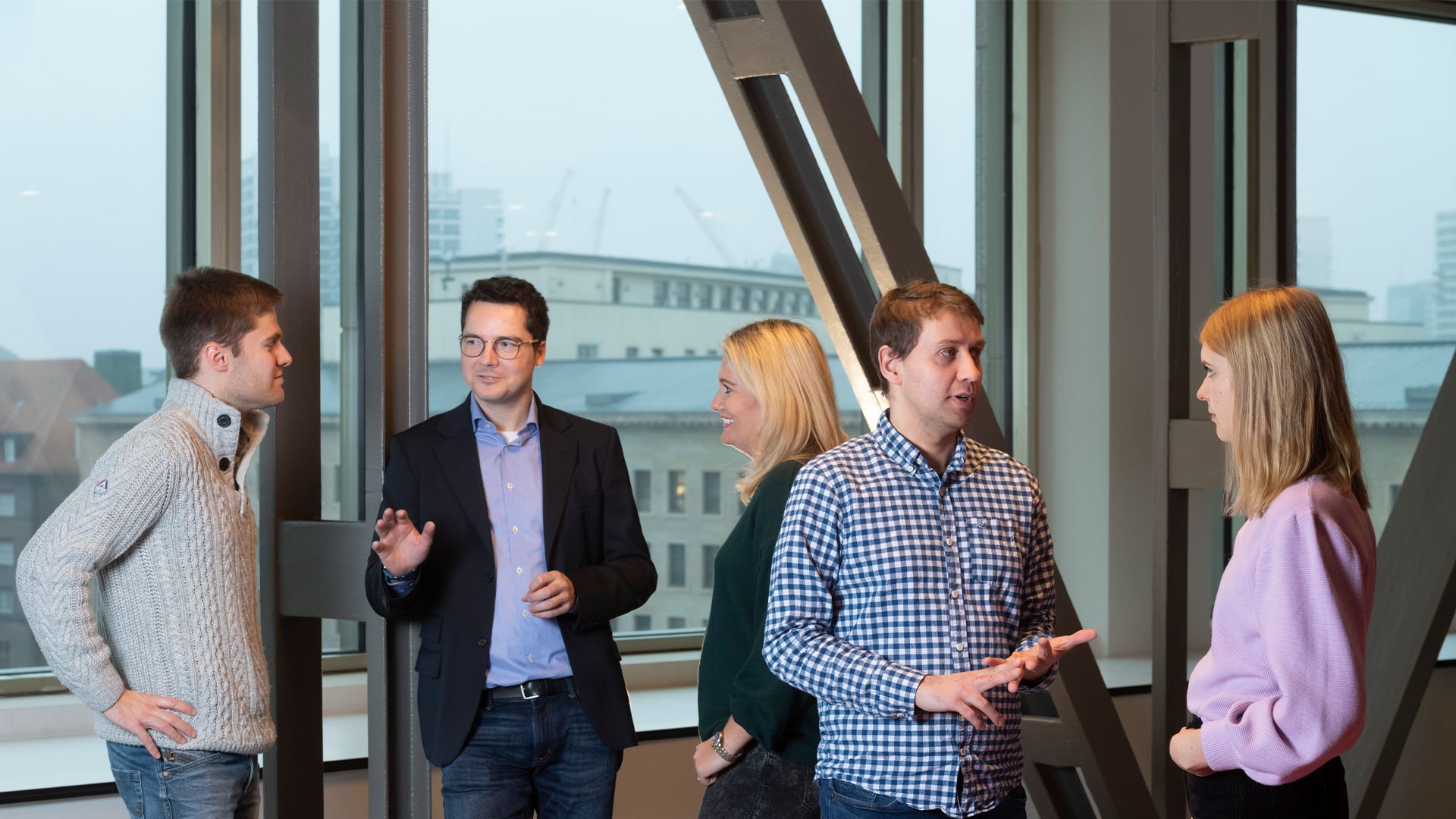
PhD program
Do you have questions or need more information about our program?
Take your research and career to the next level with a PhD. ESMT Berlin's structured PhD studies provide an intellectually stimulating and academically rigorous environment for you to make the most of your research. With our vibrant international community and focus on real-world impact, it's the ideal environment to progress your career.
- Rigorous training in state-of-the-art methodology in preparation for your independent research.
- Access to ESMT’s world-class faculty and the Berlin science community.
- Close collaboration and supervision by ESMT professors.
- Successful applicants must have obtained a Master’s in Economics or Business Studies and have performed exceptionally well in their studies.
- Applicants from related fields (such as industrial engineering, statistics, or quantitative social sciences) may also fulfill the admission requirements if they have an interest in economics or business studies.
- ESMT’s PhD program addresses outstanding candidates with a strong desire to conduct their own research projects. Participation is free of charge.
- PhD positions will be offered alongside part-time Research Assistant employment. View current vacancies .
- ESMT offers support to cover the costs related to research, including conferences and overseas visits.
- Awarded degree: PhD or Dr. rer. oec.
PhD curriculum (180 ECTS)
- Methodological and research-oriented training in mandatory course work.
- Selection of research area and supervisory support.
60 ECTS from qualification courses, soft skill courses, and presentation of a scientific article.
- Own research, electives, and further development of soft skills and teaching.
- Participation in seminars and conferences, presentation of dissertations.
120 ECTS for the dissertation and the defense colloquium.
An individual study plan, which determines the selection of courses to be taken, must be agreed upon in writing with the supervisor within two months after enrollment in the PhD Program and approved by the PhD Council.
The content of the required coursework should guarantee that ESMT PhD candidates obtain the necessary training to conduct research independently and at the highest levels. This typically requires the mastering of a broad set of research methods commonly applied in the area of management.
Integration into Berlin's scientific community
You can choose from a variety of PhD courses typically (but not only) offered by the Berlin School of Economics (BSoE) . The courses are not limited to management science, allowing candidates to choose from topics in economics, machine learning, analytics, and data science.
ESMT is a founding member of the Berlin-wide structured doctoral BSoE PhD program which candidates can choose to enroll in as an alternative to the ESMT PhD program.
For candidates enrolled in the BSoE program, ESMT offers financial support through stipends and travel allowances. Applications for the BSoE program must be made directly via the Online Portal .
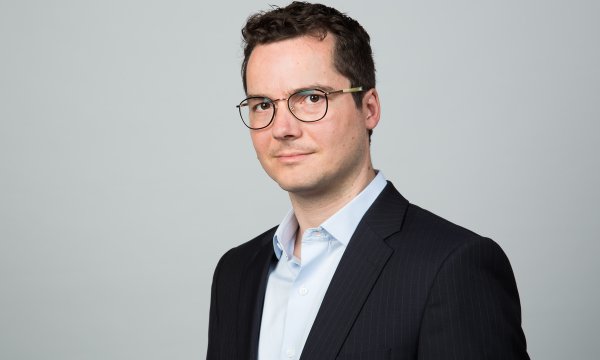
Stefan Wagner
Earn your phd at esmt berlin.
To learn more about our exciting PhD program, please use the below link to download our brochure.
Develop your research skills, mostly in the quantitative areas, currently offering a series of seminars on using generative AI for various research tasks.

PhD students & graduates
Der von Ihnen ausgewählte Inhalt ist nur auf Englisch verfügbar. Möchten Sie fortfahren?
Information
- ESMT PhD Studies
- Degree programs
- Executive education
- Library/Information Center
ESMT Berlin Schlossplatz 1 10178 Berlin, Germany Phone: +49 30 212 31 0 [email protected]
Stay up-to-date with information and events from around the school.
- Legal notice
- General T&C
- Data Privacy
- Privacy Settings
PhD Finance programs in Germany
Law and finance.

Goethe University Frankfurt
Business administration european and asian management.

University of Applied Sciences Bremen
International finance and investments.

University of Ulm

University of Gottingen
International business.
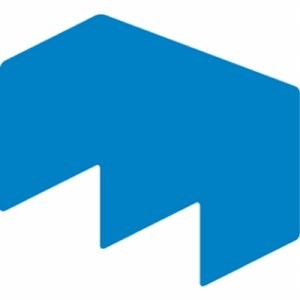
University of Applied Sciences Mainz
Finance, accounting and taxes, money and finance, international taxation.

University of Hamburg
The Times Higher Education World University Rankings is the only global university performance table to judge research-intensive universities across all of their core missions: teaching, research, knowledge transfer and international outlook.
Laws in Finance
Management and technology.

Technical University of Munich
International finance.

Berlin School of Economics and Law
Economics and finance.

University of Tübingen
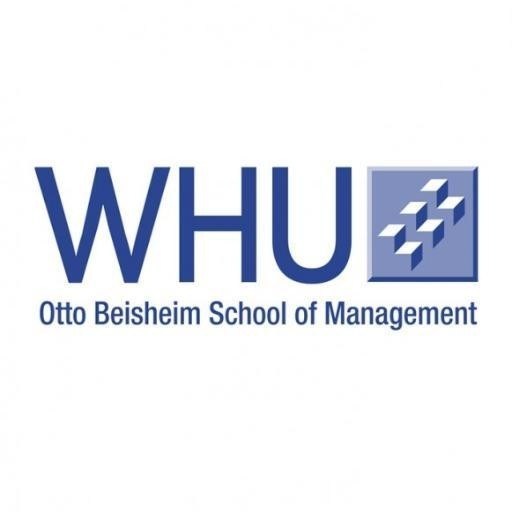
Otto Beisheim School of Management
Laws in international banking, securities and finance (for graduates from asia).

International School of Management
Financial engineering.

Karlsruhe Institute of Technology
Financial services management.
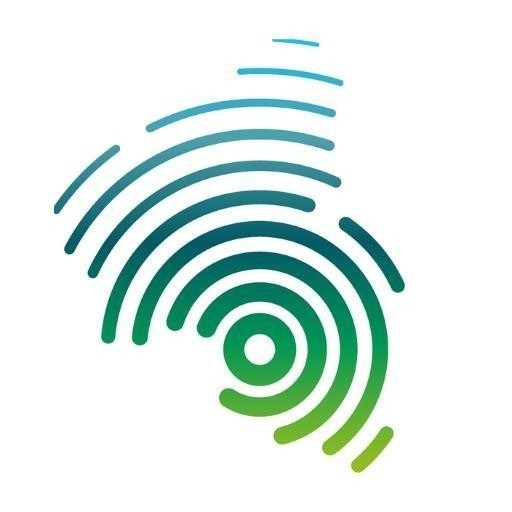
University of Applied Sciences Kaiserslautern
Corporate financial management.
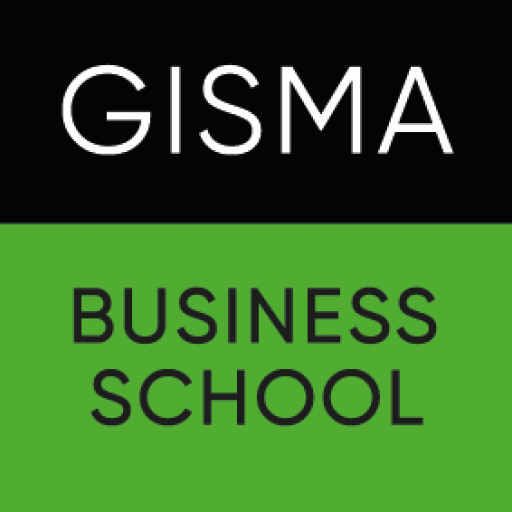
GISMA Business School
Finance and investment.
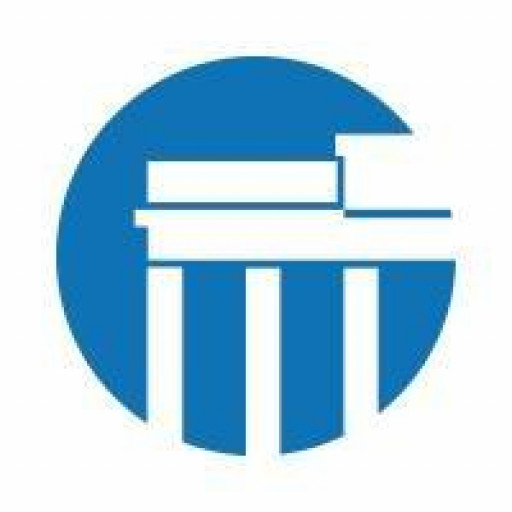
Berlin School of Business and Innovation
Deadline information, best universities with finance in germany.

Bachelor Finance programs in Germany

Master Finance programs in Germany

Most Popular Finance programs in Germany

PhD Finance programs in Germany

We use cookies to give you the best online experience. Their use improves our sites' functionality and enables our partners to advertise to you. By continuing to use our website or clicking on the I agree button you are agreeing to our use of cookies in accordance with our Cookie Policy. Details on how we use cookies can be found in our Cookie Policy
Don’t miss out!
Sign up or Log in now to save your favorites.
Get updates on your chosen subjects and programs
Wishlist your ideal programs
Save time sending enquiries to programs providers
- Program Finder
- Internships
- Scholarships
- Collections
- Bachelor programs
- Masters programs
- PhD programs
- MBA programs
- PostDoc programs
- Norway programs
- US programs
- UK programs
- Canada programs
- Germany programs
- Italy programs
- Netherlands programs
- Australia programs
- New Zealand programs
- Applied Sciences
- Natural Sciences
- Social Sciences
- Clients and Partners
- Public relations
Cookie Consent
To improve the website, the DAAD and third parties set cookies and process usage data . In doing so, the DAAD and third parties transfer usage data to third countries in which there is no level of data protection comparable to that under EU law. By clicking the "Accept all" button, you consent to this processing. You can also find selection options and explanations of these cookies and processing at the end of this page under "Cookies". There you can withdraw consent at any time with effect for the future.
- Privacy Policy
Jump to content
How to finance your PhD

How much does it cost to get a doctorate in Germany?
Tuition is free for doctoral studies for at least the first 6 semesters at all public universities in Germany. The German Studentenwerk (German Student’s Union) says an average student in Germany needs around 800 euros per month to cover living expenses such as rent, food, clothing, transport, work supplies, recreation etc. Students enrolled at university also have to pay a “semester contribution” every semester. This fee covers the cost of the important student ID card. The student ID card serves as a semester ticket for cheap or free use of public transport, and allows you reduced rates at the student cafeteria and many other places such as swimming pools, museums, cinemas, etc…
Scholarships and funding programmes
Research is a serious business in Germany, with funding programmes available from several sources. The DAAD alone, Germany’s largest provider of scholarships, provided funding for more than 51,600 foreign scholars around the world. In addition, many other public and private bodies provide financial support to doctoral students. Important donors include Germany’s federal and state governments, the European Union and a large number of charitable foundations that have set themselves the goal of supporting research and junior researchers.
For more information on funding opportunities for doctoral candidates, go to: DAAD scholarship database: www.funding-guide.de Other funding databases: www.research-in-germany.org > funding databases Selected funding programmes for PhD Students: www.research-in-germany.org > funding programmes for phd students
Job offers for doctoral students and roles for scientists
In addition to scholarships and funding programmes, there are employment opportunities at universities and research organisations. Furthermore, you may want to consider the private sector, with many German companies having generous research budgets.
Deutscher Akademischer Austauschdienst e.V. Kennedyallee 50 53175 Bonn
All addresses in the DAAD Network
DAAD Newsletters
Receive regular up-to-date information about our work and organisation.
Newsletter - DAAD
Useful Links
- Find Scholarships
- DAAD offices worldwide
Jump to top of page
- Value Package
- Blocked Account
- Health Insurance
- Current Account
- Study Finder
- Study Eligibility Checker
- Accommodation
- Learn German
What We Offer
- Bank Account
- Living in Germany
- Studying in Germany
- Working in Germany
About Germany
- German Cities
- Tourism in Germany
- German Culture
- Visa for Germany
- Costs of Living in Germany
- Finance in Germany
- Health Insurance in Germany
- Driving in Germany
- Renting in Germany
- German Universities
- Free Studies in Germany
- German Education System
- Germany vs. other Study Destination
- German Degrees
- Application Process to Study in Germany
- Financing your Studies in Germany
- Best Universities in Germany
- German Business Culture
- Best Cities in Germany for Expats
- After your Bachelor's in Germany
- After your Master's in Germany
- About Expatrio
- Partner log in
- Partner Log-in
PhD in Germany [Complete Guide]

Few achievements in life match the feeling of being awarded a PhD. Doctorates represent the pinnacle of academic achievement, and require years of diligent study.
The rewards, however, are great. Not only does a Ph.D. give you bragging rights at cocktail parties, but it also provides excellent job prospects and earning potential. But what if you want to study for a PhD outside of your home country?
Germany is an increasingly popular destination for international students, offering high-quality education and research facilities at a fraction of the cost of studying in the US or UK. Germany offers and takes research extremely seriously, and is one of the world's most popular places to study for a PhD or higher education.
But what kinds of PhDs are available, how much do they cost, and how do students apply? Let's find out.
General information
Germany is widely seen as one of the best places to apply for a PhD worldwide
The country offers excellent education and research facilities as well as competitive funding opportunities for doctoral students.
There are different types of Ph.D. programs in Germany. That's no surprise, as Germany invented the elite academic qualification in the 19th century . German PhDs cover subjects as diverse as history, linguistics, and philosophy, or chemistry, molecular biology, earth sciences, and computer science. Most lower level degree subjects can be extended to PhD level if the student desires.
How can I get a PhD in Germany?
There are two main ways to complete a PhD in Germany. Most commonly, students form a working relationship with a specific Doktorvater or Doktormutter (or "supervisor" in English). They then work on a tightly focused research task for the duration of their studies. The fruits of their university research are then presented as a "Doctorate" ( Doktorarbeit ), which tends to resemble a medium-length book.
In some cases, "Structured" PHDs are available . These resemble taught Masters degrees, but still have a strong research element. They may also focus on work placements.
How long does it take to get a PhD in Germany?
Generally speaking, a standard research-oriented German doctorate can be obtained within 4-6 years . This depends on the speed of work and personal factors such as having children. Structured doctorates can often be completed in just 3 years , but this varies from course to course.
International PhD Programs
Germany welcomes international students to study at PhD level
Many programs offer specialist assistance and course structures for overseas students.
DAAD (the German Academic Exchange Service) brings together grants for international students at leading German universities . It's the best place to start hunting for scholarships to help fund your studies .
Is a PhD in Germany free?
PhDs at German universities are usually available free of charge for international students , but living costs aren't covered. However, scholarships can cover (most) living costs. DAAD grants will average around €1,200 per month , and additional funding sources may be available.
A group of prominent universities has also created a funding scheme called StipendumPlus , which also distributes grants. Between them, finding financial help should be possible.
Do PhD students get paid in Germany?
It's not routine for international students to be paid for their work , but it is definitely possible to find paid research posts. Enquire with your supervisor, and you may find that paid jobs are available to supplement your income.
How to find your PhD Position
Finding the right PhD is essential
It's a huge investment of both finances and time , and could change the course of your life. So here are some useful tips to remember.
Take time to find a supervisor you want to work with. Balance their academic record with the resources of the university, and have a chat with them if possible. You need to be able to work with them on a daily basis.
- Searching for doctorate programs has been made much easier by databases like DAAD . Use them to assess every option.
- Consult university rankings to avoid poor-quality teaching.
- Check for services like career advice and travel grants. As a PhD researcher, you may need to travel worldwide, and this can be expensive.
- Ask about work opportunities as well. Research posts at your university are the best way to add some extra income, while gaining relevant experience.
Requirements and Application
Before you can commence doctorate studies in Germany, you'll need to complete an application process
If you want to study a traditional PhD, applications must be carried out via your prospective supervisor .
When you contact the supervisor and they agree to work with you, they will forward your request to the relevant faculty . The department will then request:
- A statement from your supervisor
- Proof of your academic qualification
- 1-2 academic references
- Proof of language proficiency
- A valid student visa and health insurance
Structured PhDs don't require students to go through a supervisor. In those cases, applications are made via the faculty, and will usually be carried out via online portals.
To study a PhD, requirements generally demand a Masters degree (8 semesters of university education), as well as English and German proficiency to a high level.
IELTS English certificates , and TestDaf German courses are advisable for all doctoral candidates, even if they have studied those languages in the past.
PhDs are a huge investment of both finances and time, so it's important to do your research before choosing a supervisor and program. Make sure to consult university rankings and databases like DAAD when making your decision. Once you've been accepted into a program, make sure to apply for scholarships and grants to help cover your living costs.
Finally, remember to ask about work opportunities as well – research posts are a great way to gain relevant experience and supplement your income.
Find Your Perfect Match
Search by city, major, or field of study and find your dream study program in Germany.
Exchange Programs in Germany [Complete Guide]
Best German Universities for Medicine
MBA in Germany
This might also be of interest to you

Pre-Studies & Studienkolleg in Germany
Germans are huge believers in preparation, and that's especially the case in the higher education sector. German universities welcome international...

Few achievements in life match the feeling of being awarded a PhD. Doctorates represent the pinnacle of academic achievement, and require years of...

German Language Course Degrees [Guide]
Learning German is an essential step for almost everyone who makes their home in the country, and it can also be one of the most enjoyable...

Master's Degree in Germany [Guide]
Germans value skills above almost everything else, and the nation's universities offer a vast range of subjects, in M.A., M.Sc., and M.Eng. formats.
![phd finance in germany MBBS in Germany [Complete guide]](https://8668267.fs1.hubspotusercontent-na1.net/hub/8668267/hubfs/Expatrio%20Hatch%20Child%20-%20Theme/Blog%20Graphics/Studying%20in%20Germany/mbbs%20in%20germany.webp?width=374&name=mbbs%20in%20germany.webp)
MBBS in Germany [Complete guide]
If you want to obtain a "Bachelor of Medicine, Bachelor of Surgery" (MBBS) qualification, studying abroad is often the best route to choose. Germany...

Best English-taught Master Programs in Germany
Germany is renowned for its high-quality education, and many of its universities rank among the best in the world. Additionally, studying in Germany...
How to Draft a Perfect German Cover Letter [Format, Guide]
- Tata Steel share price
- 155.90 2.00%
- ICICI Bank share price
- 1,095.75 1.08%
- HDFC Bank share price
- 1,448.20 0.52%
- ITC share price
- 428.55 0.13%
- Power Grid Corporation Of India share price
- 277.05 2.21%
UGC approves use of National Eligibility Test (NET) scores for PhD admissions from 2024-25 session
The announcement came following the 578th UGC meeting held on March 13, where an expert committee's recommendations were considered. The NET is conducted twice a year, in June and December, to award Junior Research Fellowships (JRF) and select Assistant Professors for those holding master's degrees

In a move aimed at streamlining the admission process for doctoral programs, the University Grants Commission (UGC) has announced that scores from the National Eligibility Test (NET) will be valid for PhD admissions starting from the 2024-25 academic session. This decision aligns with the National Education Policy (NEP) 2020 and addresses the challenges faced by candidates who currently have to write multiple entrance exams conducted by various universities for PhD admissions. PhD admission will be done based on UGC NET, and no separate exams will be required as per Mamidala Jagadesh Kumar, the UGC chairman.
The announcement came following the 578th UGC meeting held on March 13, where an expert committee's recommendations were considered. The NET is conducted twice a year, in June and December, to award Junior Research Fellowships ( JRF ) and select Assistant Professors for those holding master's degrees.
Jagadesh Kumar stated that the National Testing Agency (NTA) is planning to launch the application process for the June 2024 NET session next week. "From the academic session 2024-2025, all universities can use NET scores for admission to PhD programs in place of entrance tests conducted by different universities/HEIs," Kumar posted on X.
Under the new rules, candidates who qualify for the UGC NET will be eligible for three categories:
- PhD admission with JRF and assistant professor posts
- PhD admission without JRF and for assistant professor posts
- Admission to PhD programs only
However, it's important to note that for creating a merit list for PhD admissions, 70 per cent weightage will be given to the UGC NET scores, while the remaining 30 per cent will be based on interviews.
The UGC NET June 2024 notification is expected to be released soon on the official website at ugcnet.nta.nic.in. It's worth noting that NET scores remain valid for one year.
This move by the UGC aims to provide a unified and streamlined process for PhD admissions across universities, reducing the burden on candidates who previously had to prepare for multiple entrance exams. By recognizing the national-level NET scores, the commission hopes to enhance the efficiency and accessibility of doctoral programs in the country.
Milestone Alert! Livemint tops charts as the fastest growing news website in the world 🌏 Click here to know more.
Unlock a world of Benefits! From insightful newsletters to real-time stock tracking, breaking news and a personalized newsfeed – it's all here, just a click away! Login Now!

Swiss knife to Lucknow diaries: Four women executives on guilt and success

On the gender scale, business schools still don’t measure up

For B-school grads, a fancy MBA may not be enough. You also need work experience

The ubiquity of India's 'coaching culture', in charts

How to explain the budget to an engineer

Germany, Japan or Korea? Indian students look beyond Canada

Why India's runaway coaching centres need regulating

Mint Explainer: Why Indian schools continue to fail rural teens

Coaching centres may challenge new guidelines

How AR Rahman’s orchestra is tuning lives
Wait for it…
Log in to our website to save your bookmarks. It'll just take a moment.
You are just one step away from creating your watchlist!
Oops! Looks like you have exceeded the limit to bookmark the image. Remove some to bookmark this image.
Your session has expired, please login again.
Congratulations!
You are now subscribed to our newsletters. In case you can’t find any email from our side, please check the spam folder.

Subscribe to continue
This is a subscriber only feature Subscribe Now to get daily updates on WhatsApp

IMAGES
VIDEO
COMMENTS
Funding includes a tuition fee waiver and a cost-of-living stipend. The monthly stipend comprises of EUR 1,820. The stipend will be granted for five years conditional on the continued satisfaction of all academic programme requirements. From the first year onwards doctoral students will receive EUR 1,820 for the period of 5 years.
Programme Overview. Frankfurt School of Finance & Management is one of Europe's leading business schools with an internationally recognised reputation for relevant and rigorous research. We are determined to attract the most talented doctoral students in accounting, economics, finance and management, therefore we offer a stimulating academic ...
Make an appointment and discuss your options. Then ask your potential supervisor to get the ball rolling: enroll as a doctoral student and apply for admission to the DPF. You may also submit an application without naming a supervisor. In this case the coordinator of the DPF will consider your application and approach potential supervisors for you.
Finance. Finance. Finance. This page shows a selection of the available PhDs in Germany. If you're interested in studying a Finance degree in Germany you can view all 4 PhDs. You can also read more about Finance degrees in general, or about studying in Germany. Many universities and colleges in Germany offer English-taught PhD's degrees.
PhD Program. The Berlin School of Economics PhD Program provides outstanding doctoral students with a vibrant, intensively networked research community. The program develops the students' talents in a unique combination of a high-level, academic research environment together with applied, policy-oriented research opportunities.
Students interested in the practical relevance of academic research in finance and who have a strong academic track record should consider writing a doctoral dissertation. The finance track of the Berlin School of Economics PhD ... In addition, Prof. emeritus Richard Stehle has calculated the Fama-French factors for Germany since 1958. ...
Graduate School of Economics, Finance, and Management . House of Finance, Campus Westend Theodor-W.-Adorno-Platz 3 60629 Frankfurt am Main, Germany . Please note: Due to technical problems, for the time being messages sent from e-mail servers of Goethe University may be rejected by Microsoft servers, including those for Hotmail, Live and ...
The Cologne Graduate School (CGS) in Management, Economics, and Social Sciences offers a doctoral (PhD) programme with an integrated M.Sc. Economic Research. It consists of two stages: The first stage of the programme is the two-years M.Sc. Economic Research. It prepares students for high-level research in economics. It is fully taught in English.
Description/content. Compelling for its coverage of both theory and empirical analysis, the PhD programme at GSEFM offers a two-year cycle of doctoral-level courses developed specifically to transmit a rigorous methodological framework in the core areas of each track of the programme (economics, finance, marketing and accounting), followed by ...
Ph.D. in Finance, fully funded In cooperation with the Graduate School of Economics, Finance, and Management (GSEFM) The GSEFM offers a quantitative and research-oriented education featuring the structures of premier anglo-saxon graduate programs. Together with SAFE, it provides an environment where students can benefit from a unique research group in Finance spanning a wide range of topics as ...
About. Compelling for its in-depth coverage of issues in both asset pricing and corporate finance, the Ph.D. Program in Finance at Darmstadt University of Technology offers a two-year cycle of doctoral-level courses developed specifically to transmit a rigorous methodological framework in the core areas of finance as well as selected core areas ...
The Berlin School of Economics PhD programme has four PhD tracks from which students can choose: PhD in Accounting. PhD in Economics. PhD in Finance. PhD in Management. These tracks share a similar structure and allow for numerous specialisations. The Berlin School of Economics post-doc programme ( Berlin School of Economics Research Associates ...
Complete PhD procedures. Dr. Marcus Scheffer (2011-2016, internal, current employer: ERGO Group AG) Dr. Christopher Bierth (2013-2016, internal, current employer: B&W Deloitte GmbH) Dr. Felix Irresberger (2013-2015, internal, current employer: Leeds University Business School) Dr. Hendrik Supper (2012-2014, internal, current employerr: d-fine GmbH)
The Max Planck Institute for Tax Law and Public Finance is part of the Max Planck Society, Germany's most successful research organization. We offer students the opportunity to pursue a Ph.D. in the areas of legal studies or economics. Young academics who write their dissertations at the Institute benefit from attractive financial support.
PhD in Finance Programs in Germany. Earning a doctorate in finance, such as a PhD in Finance or DBA degree, could provide students with a strong foundation in the theoretical and empirical aspects of modern and global finance and economics. PhD in Finance and DBA - Finance degrees are terminal degrees, meaning they represent one of the ...
The University of Bonn's Structured PhD Programs offer a comprehensive and cross-disciplinary curriculum designed to prepare students for a successful career. Programs such as the Bonn International Graduate Schools (BIGS), PhD programs within our Clusters of Excellence, Structured Doctoral Programs by Discipline, and Third-Party Funded Programs include innovative, personalized supervision ...
ESMT is a founding member of the Berlin-wide structured doctoral BSoE PhD program which candidates can choose to enroll in as an alternative to the ESMT PhD program. For candidates enrolled in the BSoE program, ESMT offers financial support through stipends and travel allowances. Applications for the BSoE program must be made directly via the ...
Goethe University Frankfurt. Frankfurt, Germany. Study mode: On campus Languages: English. Local: $ 763 / Year (s) Foreign: $ 763 / Year (s) StudyQA ranking: 7855. Similar programs. Choose an adviser Ask Admissions. PhD.
PhD Studies & Research. Science and research in Germany are characterised by a distinguished infrastructure, a wide variety of disciplines, well-equipped research facilities and competent staff. Germany offers various career opportunities for international PhD students and researchers. Discover Germany's top-tier PhD programs and research scene ...
Find exclusive scholarships for international PhD students pursuing Finance studies in Germany. Search and apply online today. Explore; Decide; Apply; Explore. ... Finance scholarships in Germany. Programmes Scholarships. Page 1 | 40 Scholarships . Filters 2. ... Germany scholarship - Faculty of East Asian Studies. Merit-based.
Tuition is free for doctoral studies for at least the first 6 semesters at all public universities in Germany. The German Studentenwerk (German Student's Union) says an average student in Germany needs around 800 euros per month to cover living expenses such as rent, food, clothing, transport, work supplies, recreation etc. Students enrolled ...
That's no surprise, as Germany invented the elite academic qualification in the 19th century. German PhDs cover subjects as diverse as history, linguistics, and philosophy, or chemistry, molecular biology, earth sciences, and computer science. Most lower level degree subjects can be extended to PhD level if the student desires.
A Ph.D. in finance can prepare you for various specialized, high-level roles in financial management, business management, financial analysis and academia. Schools of business often offer finance ...
"From the academic session 2024-2025, all universities can use NET scores for admission to PhD programs in place of entrance tests conducted by different universities/HEIs," Kumar posted on X.